Joseph F. Wall ’41 Alumni Service Award Recipients
The award is named in honor of Joseph F. Wall ’41, professor of history and longtime dean of the College, who inspired the ideal of social responsibility in his students. It was established as part of the College’s sesquicentennial celebration as a tribute to Grinnell’s tradition of social commitment among its alums.
Each year, a committee composed of alumni (including previous Wall Award recipients), a student, and faculty members reviews applications and awards the $40,000 grants to either jump-start or complete a project that shows creativity and commitment to effecting positive social change.
During the past 28 years, the Wall Service Award has been presented to 71 individuals who have contributed their time and talents to 64 diverse projects throughout the U.S. and 22 other countries. The College has given out more than $1 million to alumni through this award program.
Click on the year below to learn more about that years’ recipient(s).
2024 Wall Service Award Recipients
Gary Knamiller ’61
 Knamiller’s project is to place an audio textbook player in the hands of each blind and partially sighted student and teacher in grades 5-12 in the Tigray Province of Ethiopia.
Knamiller’s project is to place an audio textbook player in the hands of each blind and partially sighted student and teacher in grades 5-12 in the Tigray Province of Ethiopia.
“Although it is wonderful that Ethiopia has a progressive policy of inclusive education for additional needs children to attend mainstream schools, blind students had little access to the curriculum,” Knamiller says. “They had to rely on their impressive memories and their sighted friends reading the textbook to them.”
The Talking Textbook program changed all that, Knamiller says. “Most people in Tigray, as in many areas of Ethiopia, are low-income, subsistence farmers. There is little electricity, which most assistive learning devices need. Our audio textbook players are solar powered. And they can hold six to eight recorded textbooks, enough for one grade level.”
When Knamiller and his wife retired, they joined the British Voluntary Service Overseas (VSO) and worked in teacher training and science curriculum development in Ethiopia from 2003-2006. It was then that they got to know the VSO volunteers who went on to set up Special Education Needs Ethiopia-UK in 2013.
Knamiller, who lives in England, is the UK talking textbook coordinator for the organization. The program began experimentally in 2014 and developed into a Tigray-wide operation from 2016 to 2020 serving over 250 blind and partially sighted students and teachers each year. “For four successful years our audio textbook players were a godsend for our blind students and teachers,” Knamiller says. “As one student said, ‘My audio textbook player has given me back my eyesight.’”
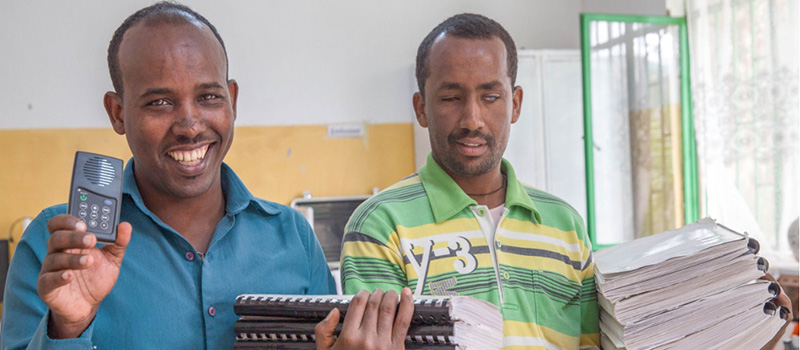
But then the pandemic hit followed by a two-year, horrific civil war. Peace was declared in November 2022, but schools didn’t fully open again until September 2023. “Although we have been able to make contact with 257 of our former blind students and teachers, almost all the audio textbook players were either lost or broken,” he says.
The award money will be used to help relaunch the Talking Textbook program. It will provide for 150 MP3 players and the technical staff to record and upload the textbooks as well as distribute, train, monitor, and evaluate the program as they have done in the past. Some of the award money may also be used for developing information materials for parents of visually impaired children and to cover the remaining funding needed for the construction of a new girls’ dormitory at the Mekelle School for the Blind.
Hansi Dean ’84
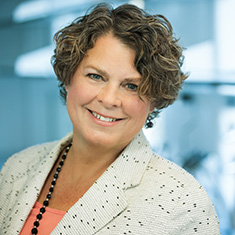 Dean is part of a nondenominational group of approximately 35 committed volunteers formed in late 2021 to support Afghan evacuees who were resettling in Manchester, New Hampshire and Lowell, Massachusetts. One of the group’s projects is called Sewing Seeds for Hope, a collaboration of Afghan women artisans who create handcrafted items to sell, which creates economic empowerment.
Dean is part of a nondenominational group of approximately 35 committed volunteers formed in late 2021 to support Afghan evacuees who were resettling in Manchester, New Hampshire and Lowell, Massachusetts. One of the group’s projects is called Sewing Seeds for Hope, a collaboration of Afghan women artisans who create handcrafted items to sell, which creates economic empowerment.
Afghan women are likely to feel isolated and depressed after resettlement in the U.S., Dean says. Most women did not have the opportunity to get an education, and few speak English.
“Most of the women we serve self-report trauma in their lives in Afghanistan, endless war, fear of the Taliban, a harrowing departure, misinformation about life in America, and stress in adapting to a completely different culture,” Dean says.
Dean will use the Wall Award funding to expand participation in the economic empowerment program and develop a literacy program for a larger group of Afghan evacuee women. This will also include incorporating training sessions by a professional seamstress in machine embroidery, serging, and sewing American-style garments and other high-value products.
“We aim to help Afghan women feel empowered and confident as they navigate life in America,” Dean says.
“It’s hard to imagine how anyone could follow the events of the war in Afghanistan, followed by the frantic evacuation of U.S. allies, and not be moved,” she added. “I feel that, as Americans, we have a moral obligation to support our Afghan allies. As an American woman, it is impossible to conceive of what life is like in Afghanistan for women and heartbreaking to see the small, hard-won gains for women over the past 20 years be erased in an instant. The Afghan women I have come to know are a daily inspiration. I am honored to walk beside them through their struggles, grief, strength, resiliency, hope, and even joy. I am motivated by the possibility that Afghan women in the U.S. can hope and dream for a better future for themselves and their daughters.”
Alexa Ryer ’20
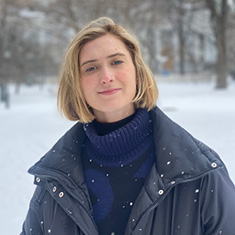 Ryer’s project is to establish and equip rooms in three National Police Departments of Ukraine as a place to conduct interviews with survivors of gender-based violence or conflict related sexual violence.
Ryer’s project is to establish and equip rooms in three National Police Departments of Ukraine as a place to conduct interviews with survivors of gender-based violence or conflict related sexual violence.
Since the outbreak of war in February 2022, Ukraine has reported numerous cases of conflict related sexual violence committed against Ukrainian civilians by members of the Russian armed forces. This troubling trend, combined with the simultaneous increase in domestic violence, and risk factors that accompany large scale internal displacement, means that many Ukrainians are now experiencing, or are at risk of experiencing, sexual violence at rates much higher than before the war, Ryer says.
“Gender based violence has greatly intensified for Ukrainian women, the reasons mainly being the lack of security, the absence of rule of law, the impunity of the perpetrators, and the stigma attached to revealing instances of sexual and gender-based violence,” she says.
Since 2022, Ryer has been the program coordinator for Europe and Eurasia at Vital Voices Global Partnership in Washington D.C. She has worked extensively on programing relating to gender-based violence prevention.
The Wall Award will allow Ryer to a work with a local Ukrainian organization – NGO Resource Center – to implement a three-step plan.
First, the project will establish specialized interview rooms for survivors of conflict related sexual violence in Ukrainian police stations. Second, NGO Resource Center will perform a training on interview best practices and survivor-centered interview approaches for police officers performing interviews in these specialized rooms. Finally, members of the legal system (including prosecutors, investigators, and judges) who will interact with survivors during the trial process will also receive training in survivor-centered approaches.
“Together these three activities will aim to harmonize and improve experience within the legal process for survivors from first report through the trial process,” Ryer says. “By improving the interview and legal process experience for survivors, it will not only reduce re-traumatization, but also encourage more survivors to come forward and testify.”
In all three projects, Grinnellians are addressing issued made worse by wars.
“We often hear that the Grinnell experience is essential to improving the world,” says Sarah Smith-Benanti, associate director of alumni and donor relations, diverse communities. “The three Wall Award recipients have really taken that ethos to heart. These projects will immensely benefit three global communities that have had to live through tremendous conflict.”
2023 Wall Awards presented to four alums pushing for inclusivity, expanded knowledge
Four projects developed by Grinnell College graduates have been selected for the 2023 Joseph F. Wall ’41 Alumni Service Awards.
Maggie Connolly ’07, Smita S. ’08, Lisa Eshun-Wilson ’14, and Mikayla Findlay ’16 are the award recipients. They will use the $40,000 prizes to address personally meaningful projects in the fields of arts, technology, community-building, and Diversity, Equity, and Inclusion.
The following is a closer look at the projects of this year’s recipients.
Maggie Connolly ’07
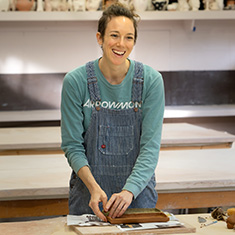 Connolly’s project – The Bottom Knox Ceramics Soul Collective – provides ceramic arts education at a community center whose mission is to build community, celebrate culture, and engage the creativity of Black people in Knoxville, Tennessee. The ceramics workshop at the Bottom has already served more than 50 people in its first year of operation and provided opportunities in the form of exhibitions, markets, and teaching workshops. The Bottom Ceramics Soul Collective has gathered weekly in community workshops.
Connolly’s project – The Bottom Knox Ceramics Soul Collective – provides ceramic arts education at a community center whose mission is to build community, celebrate culture, and engage the creativity of Black people in Knoxville, Tennessee. The ceramics workshop at the Bottom has already served more than 50 people in its first year of operation and provided opportunities in the form of exhibitions, markets, and teaching workshops. The Bottom Ceramics Soul Collective has gathered weekly in community workshops.
The $40,000 award will be used in several ways, including renovating the basement of the Bottom Community Center into a full ceramics’ studio, complete with potters wheels and a kiln. Part of the grant will go toward providing teacher pay to collective members who want to teach ceramic workshops.
“The funding received from the Wall Service Award will not only guarantee another year of materials and instruction offered free of charge to community members; it will also allow students to progress in their ceramic art making and provide opportunities to community members to teach each other, allowing the community to expand and strengthen,” Connolly says.
A studio art major at Grinnell, Connolly moved to Nanjing, China, in 2007 with the Grinnell-in-Nanjing Fellowship Program, starting a 12-year journey into Asian ceramics. She earned a Master of Fine Arts in ceramic design from Tsinghua University in Beijing, China in 2013 – the first ever American to do so. Today, she is full-time professional artist with Mighty Mud studios in Knoxville.
“Art is one of the most valuable parts of the human experience that should be accessible to all peoples; this project ensures that this will continue to happen, even after the grant period has ended.” Connolly says. “Allowing communities to have a safe space in which to explore individual and collective identity through art making is an invaluable experience.”
Smita S. ’08
Smita’s project draws on longstanding interest in fostering democratic society in Malaysia by encouraging more open and equitable access to information. She will use the Wall Award to develop web resources and trainings that will provide Malaysians with credible information and user-friendly guidelines for accessing public services and navigating governance systems.
“The purpose of this project is to help Malaysians navigate the many barriers to accessing high quality information relevant to their daily lives as residents, workers, consumers, and citizens,” Smita says. “By making good, relevant information freely and far more easily available to everyone, we can disrupt a key strategy in the reproduction of inequality and social fragmentation on the basis of race, class, language, and location.”
Smita intends to create and publish two websites: one to demystify and disseminate information on Malaysia’s governance system, and the other to offer guidance on civil liberties, labor rights, consumer rights, and civic education for Malaysian residents, citizens, and non-citizens alike.
Since language is a key determinant of access to public services, residents who are not versed in Malay are at a disadvantage, notes Smita. This project will be planned for and with diverse and multilingual groups who live in the country, and information will be made available in Bengali, Burmese, Chinese, and Tamil, in addition to English and Malay.
Smita previously worked with NGOs focusing on women’s rights and development. After some years away, she returned to Malaysia in 2018 and volunteer taught at an informal school for stateless children. “There I learned to see the specific ways in which information gaps entrench marginalization and inequality,” she says.
In addition to these websites, part of the grant will be used to develop and run offline trainings and local community events on information literacy and civic education, primarily for school students.
Lisa Eshun-Wilson ’14
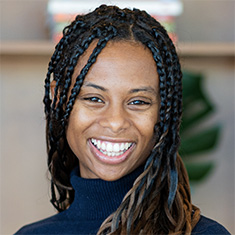 A postdoc research fellow in biology at the Scripps Research Institute in California, Eshun-Wilson has started a Diversity, Equity, and Inclusion (DEI) initiative aimed at creating an inclusive and supportive climate at the institute for underrepresented minority postdoctoral scholars. Called inclusiveScripps, or iScripps for short, the project raises awareness about issues that disproportionately affect underrepresented minority trainees, such as stereotype threat, imposter syndrome, the mentoring gap, and income disparity-related issues.
A postdoc research fellow in biology at the Scripps Research Institute in California, Eshun-Wilson has started a Diversity, Equity, and Inclusion (DEI) initiative aimed at creating an inclusive and supportive climate at the institute for underrepresented minority postdoctoral scholars. Called inclusiveScripps, or iScripps for short, the project raises awareness about issues that disproportionately affect underrepresented minority trainees, such as stereotype threat, imposter syndrome, the mentoring gap, and income disparity-related issues.
“My aim is to craft an inclusive, welcoming environments for scientists of all backgrounds so they can confidently pursue the unknown wonders of the universe,” Eshun-Wilson says. “My experience as an African American woman from South Los Angeles has allowed me to gain direct insights into the educational and institutional initiatives necessary to recruit and retain talented scientists from some of the most vulnerable and limited backgrounds.”
A key part of iScripps is implementing an “Office Hours” mentoring program, which will give postdoc students the opportunity to foster productive mentee-mentor relationships or future collaborations with faculty members who identify as underrepresented minorities or are active allies.
The mentoring program will be modeled after the one Eshun-Wilson created at the University of California, Berkley. As a doctoral student, Eshun-Wilson established iMCB – inclusive Molecular and Cell Biology, which included an annual conference. Similarly, she plans to establish a conference in the spring at Scripps and invite speakers who champion both science and DEI-related work.
“iScripps will not only promote equity in education and increase diversity in academia, but also acknowledge the complexity and interconnected aspects of identity and use this perspective to help organizations design more effective interventions and policies,” she says.
Mikayla Findlay ’16
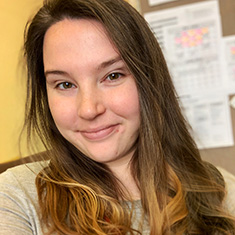 Since returning to her hometown of Lincoln, Nebraska in 2017, Findlay has been involved with Common Root Mutual Aid Center, a volunteer nonprofit that creates a culture of inclusivity by hosting free community-building events. A key tenet of Common Root’s mission is uplifting other social justice organizations, and Findlay will use 75 percent of the Wall Award funding for that purpose.
Since returning to her hometown of Lincoln, Nebraska in 2017, Findlay has been involved with Common Root Mutual Aid Center, a volunteer nonprofit that creates a culture of inclusivity by hosting free community-building events. A key tenet of Common Root’s mission is uplifting other social justice organizations, and Findlay will use 75 percent of the Wall Award funding for that purpose.
The Common Root Community Grant will provide $250 to a dozen community organizations, artists/local makers, and fundraisers each year. Common Root volunteers will choose three recipients quarterly based on democratic consensus following nominations and group discussion.
“Common Root Mutual is a central hub in a network of grass-root nonprofit organizations that perform heavy lifts on shoestring budgets,” Findlay says. “I wanted to create this grant to recognize and help people in my community who are already doing the work – feeding people, bringing people together, and supplying the basic physical, social, and emotional needs of the community.”
The other 25 percent of the Wall Funding will be used to subsidize approximately half of Common Root’s annual operations costs for the next 10 years.
Findlay is a budget analyst for the Nebraska Legislative Fiscal Office, so she is well versed in grant tracking and reporting.
“My experience at Grinnell highlighted for me the ways in which people will congregate around their passions and how often they overlap in the strangest of ways,” Findlay says. “Well-documented successes from this project will enable us to seek additional competitive funding in the future. Like Grinnell College, Common Root became a source of my introduction to lifelong friends. I want to be around people who enthusiastically take upon the obligation to make this world a better place.”
2022 Wall Award recipients addressing shortcomings in mental health, education
Three projects developed by four Grinnell College graduates have been selected for the 2022 Joseph F. Wall ’41 Alumni Service Awards.
Kathryn Railsback ’80, Kimberly L. King-Jupiter ’87, Mamata Pokharel ’07, and Raji Manjari Pokhrel ’08 are the recipients of the awards. Pokhrel and Pokharel are teaming up on a combined project.
The following is a closer look at the projects of this year’s recipients.
Kathryn Railsback ’80
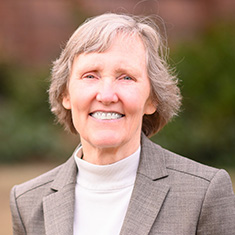
Railsback is organizing and implementing trauma education and resiliency workshops for South Sudanese refugees in Kenya and Uganda. Described by the United Nations as “the largest refugee crisis in Africa,” at last count more than 1 million South Sudanese refugees were living in substandard conditions in Kenya and Uganda.
Railsback will be implementing a trauma education and resiliency methodology called Healing and Rebuilding Our Communities – or HROC for short – that was developed under the auspices of the African Great Lakes Initiative of Friends Peace Teams by genocide survivors in Rwanda and Burundi in the early 2000s. Railsback was trained as a HROC facilitator in Rwanda in 2013 and has made nine trips back to East Africa to facilitate workshops since then.
“HROC is an effective peer-led, community-based model for helping people who have suffered traumatic experiences,” she says. “It is especially valuable in high-conflict, low-resource areas. It includes education on the causes and symptoms of trauma, and on handling loss and grief. Participants also discuss constructive versus destructive means of handling anger and how to rebuild trust within communities. Workshops are highly interactive, with small and large group discussions, games, movement, and shared meals.”
Railsback and the African Great Lakes Initiative have already identified trainers and facilitators to initiate workshops and trainings in the Kakuma Refugee Camp in Kenya and in northern Uganda.
A resident of Poulsbo, Washington, Railsback is a resident activist at the Ground Zero Center for Nonviolent Action. She campaigns for reducing U.S. military expenditures, in part because it diverts resources from serious humanitarian needs in other parts of the world.
“When I bring firsthand accounts from places like Kakuma Refugee Camp, it makes my advocacy with U.S. policymakers and others more effective,” she says.
Kimberly L. King-Jupiter ’87
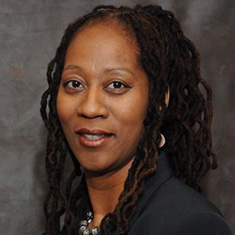
King-Jupiter, who has a doctorate in education policy, is piloting an educational initiative in Alabama to bolster student performance and the engagement between students, teachers, and parents. The project is called Building-Students.With.Academic.Greatness, or B-S.W.A.G. for short.
A professor in the doctoral program in Educational Leadership, Policy and Law at Alabama State University, King-Jupiter will partner with a public middle school in Montgomery, Alabama, that serves 641 sixth through eighth graders. Eighty three percent of those students are economically disadvantaged.
“As an African American woman raised by my mother on a very limited income, I was the first person in my family to go to and complete college,” King-Jupiter says. “So, I understand at a visceral level the way schools treat students from families deemed ‘at-risk.’ Across my career, I have developed and implemented collaborative projects that serve urban and rural populations
underserved by schools.”
This project is a replication and expansion of Students.With.Academic.Greatness, which was organized by King-Jupiter in Nashville five years ago. B-S.W.A.G. is an incentive program that rewards students, parents, and teachers for working collaboratively.
“For populations historically marginalized in schools, the type of mutual respect that needs to exist for the school and home to function separately is less possible because most aspects of schools denigrate the language, culture, and perspectives of diverse populations,” King-Jupiter says. “An initiative that incentivizes increased contact and communication between parents and teachers has the potential to enhance students’ overall academic performance.”
Wall funding will help supply lapel pins for students, gift cards for teachers, and gift baskets for families when each meets the established criteria.
Mamata Pokharel ’07 and Raji Manjari Pokhrel ’08
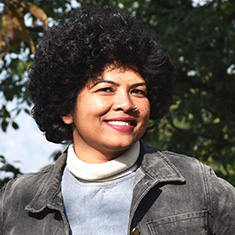
To expand the reach and scope of mental health conversations in Nepal, Pokhrel and Pokharel are starting a podcast to kindle nuanced conversations on mental health in Nepal. The podcast, informed by workshops, interviews, conversations, and surveys on relevant topics, will help the two therapists in Kathmandu expand impact beyond the therapy room.
“We want to normalize experiences of distress, rather than stigmatize or medicalize it,” Pokhrel says. “We want to stay close to the context of Nepal – and how people experience and deal with mental distress in the country in unique, and not-so-unique ways. And we want to have conversations that locate mental health problems not within individual bodies but within systems of power, and thus create space for individuals, families, and societies to bring their skills and know-hows to dealing with the problem.”
The 10 podcast episodes, which will be titled Utar Chadav (loosely translated as ups and downs), will begin in February 2023. Two of the proposed episodes include, “When addiction comes knocking” and “Being witness to the expansiveness of gender and sexuality.”
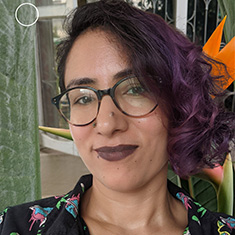
For each episode, narratives of lived experiences will be collected through pre-production workshops, and surveys with groups of intended audiences, including high school students, teachers, working mothers, survivors of gender violence, survivors of addiction, and members of the LGBTQI+ community.
“Introducing mental health topics carefully through representative storytelling, we aim to rob dominant discourses and social taboos of their power by introducing alternatives from lived experiences around us,” Pokharel says.
The Wall funding will help with workshop logistics, website, design material, marketing, and podcast production.
“We hope that by getting our podcast noticed and valued through this grant, we will be able to figure out funding mechanisms that can lead us to long-term sustainability,” Pokharel says.
2021 Wall Service Awards presented to four alums pushing for change
In celebration of the 25th anniversary of the Joseph F. Wall ’41 Alumni Service Awards, four Grinnell College graduates have been chosen as this year’s award winners. Tovah Flygare ’98, Alok Shah ’04, Rachel Walman ’06, and Susan Klumpner ’09 will each use a $40,000 grant to support education, health, and environmental projects around the globe.
Tovah Flygare ’98
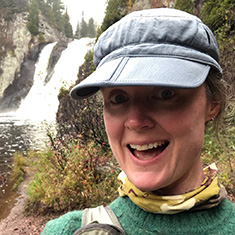 The St. Croix watershed is a nearly 8,000-square mile system of streams and rivers serving more than a million residents in Minnesota and Wisconsin. It’s also in urgent need of stewardship. Runoff from farms, homes, and industry have polluted parts of it, and where the watershed is relatively pristine, protective measures are needed to keep it that way.
The St. Croix watershed is a nearly 8,000-square mile system of streams and rivers serving more than a million residents in Minnesota and Wisconsin. It’s also in urgent need of stewardship. Runoff from farms, homes, and industry have polluted parts of it, and where the watershed is relatively pristine, protective measures are needed to keep it that way.
Flygare is a trained steward with the St. Croix Master Watershed program (SCMWS), and she helps lead the volunteer organization. The Wall Service Award will allow SCMWS to train more citizen-stewards to address watershed health and launch a website to educate the public about ongoing projects.
Flygare is an attorney who teaches business, agricultural, and sustainability law at the University of Wisconsin-River Falls.
“When I moved to the St. Croix watershed, I found water issues literally in my backyard, as many private wells in the watershed like mine are polluted,” she says.
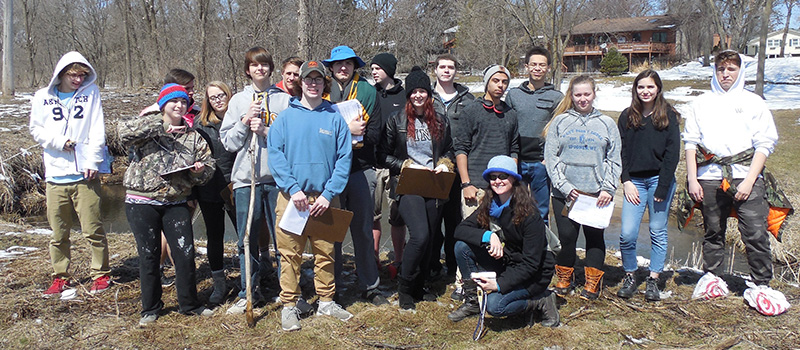
“SCMWS training helped me address watershed-related issues on my family land and helped me instigate several scientific, academic, and community activities that resulted in additional community interest and ongoing action.”
The Wall Award will encourage grass roots efforts by those concerned about clean water.
“Just as water connects us, I find water stewardship can connect people with different backgrounds and beliefs in a healthy community effort for safer water,” Flygare says. “With the increase in ‘green’ and water science-related jobs, our youth programs often offer an introduction to water science and related employment opportunities. Much of my organization’s stewardship work has multiple benefits for the community although water is always central.”
Alok S. Shah ’04
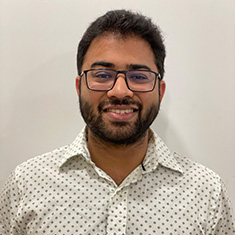 In the poorest districts of rural South Gujarat, India, more than 50 percent of women and children suffer from anemia due to iron-poor diets. The result is high maternal and perinatal mortality rates, along with fatigue, heart problems, post-partum depression, and physical and neurological problems among newborn babies.
In the poorest districts of rural South Gujarat, India, more than 50 percent of women and children suffer from anemia due to iron-poor diets. The result is high maternal and perinatal mortality rates, along with fatigue, heart problems, post-partum depression, and physical and neurological problems among newborn babies.
Shah, who trained in molecular and cell biology, will use Wall funding to launch the Anemia Initiative. Over the course of a year, 30,000 rural children and adults will be screened and treated for free, and outreach teams will conduct awareness programs.
“This project is one that’s closest to my heart,” Shah says. “The power of preventative medicine lies in rooting out a lifetime of illness, and that is the power I want to tap.”
Shah was a researcher at the University of Chicago when he visited rural India and was shocked by poverty and healthcare issues. He moved to Mumbai and for the past six years he has been involved with Shrimad Rajchandra Hospital (SRH) and Shrimad Rajchandra Medical Trust, which serves a rural low-income population.
“We are planning on this to be a year-long project,” says Shah. “On the basis of the success of this project, we’ll launch a larger program in the future. But combating anemia is a long and sustained effort, and we are determined to keep at it for as long as it takes.”
Rachel Walman ’06
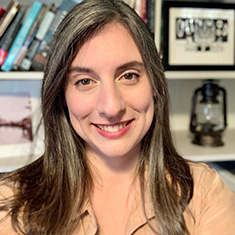 Walman has led high school and career training internships, but not one quite as unique as what she’ll be doing with her Wall Service Award. As director of education at New York City’s Green-Wood Cemetery, Walman’s piloting a summer internship for high school students combining academic research, job training, public history, and memorialization.
Walman has led high school and career training internships, but not one quite as unique as what she’ll be doing with her Wall Service Award. As director of education at New York City’s Green-Wood Cemetery, Walman’s piloting a summer internship for high school students combining academic research, job training, public history, and memorialization.
“We’re creating an outdoor classroom where youth ages 14-18 will interpret the graves in two specially selected sections of the site,” explains Walman. The cemetery, a National Historic Landmark established in 1838, is known for its grounds, architecture, and world-class statuary. The cemetery has more than 600,000 visitors annually.
The Wall Award will fund internships for 20 New York City students to restore and interpret two sections in the cemetery’s oldest public lots. Interns will unearth sunken monuments, then clean, reset and repair those and other monuments in the sections. They’ll research the lives of those buried utilizing archival records, work with horticulture staff to re-landscape the lots, then create interpretive tools such as text panels, guided tours, and content for Green-Wood’s website.
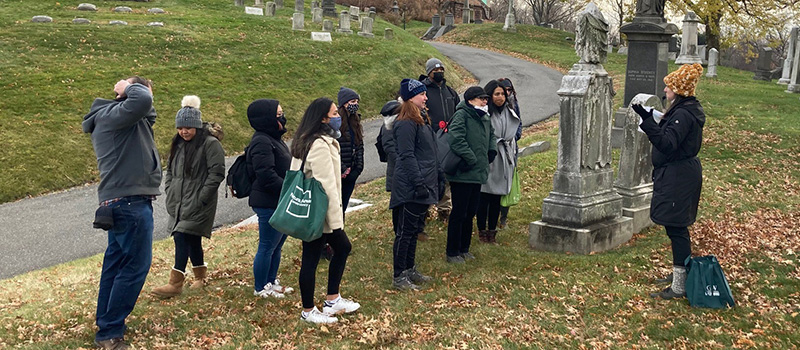
“My past experiences have given me firsthand knowledge of what makes learning stick,” Walman says. “Real work, not busy work; building relationships with experts; explicit instruction in how skills and learning connect to work outside of school; and awe-inspiring encounters with content.”
Susan T. Klumpner ’09
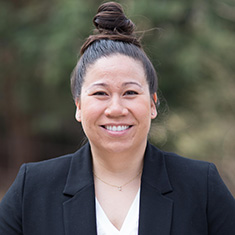 Schools in low-income communities throughout the U.S. are struggling with cuts to student services, ranging from music to tutoring to social work. The pandemic has further strained these under-resourced schools.
Schools in low-income communities throughout the U.S. are struggling with cuts to student services, ranging from music to tutoring to social work. The pandemic has further strained these under-resourced schools.
The Parent Mentor Program fills some of those critical gaps by recruiting and training local parents to provide academic instruction alongside teachers in kindergarten through third-grade classrooms. The program has successfully launched in Chicago, and Klumpner will use the Wall Award grant money to expand it to several Baltimore city public schools.
“We’ll contract 16 parents as mentors, as well as two parents as coordinators, to serve over 400 students in Baltimore,” explains Klumpner, associate director of field education at University of Chicago’s Crown School of Social Work. “Studies have shown that the Parent Mentor Program has demonstrated wide benefits to the classroom. Teachers report that it helps with classroom management, improves student reading and math skills, and helps social-emotional development.”
Klumpner is the co-founder of the Active Children Excel (ACE) Project, which nurtures children living in underserved communities by building character, confidence, and competency through the sport of tennis. ACE has expanded services by adding life skills, academic enrichment, homework assistance, nutrition, and social-emotional learning to the program’s core curriculum. The Parent Mentor Program further connects schools to community by drawing on the strengths of neighborhood families.
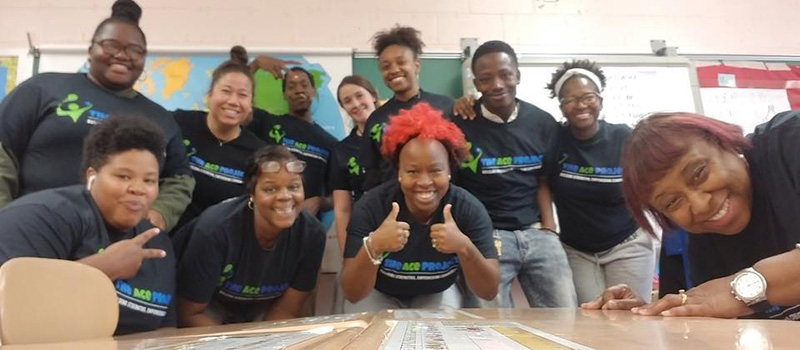
“Having parents engaged in the classroom provides experience, knowledge, and insight in schools, as well as much-needed support and perspective for teachers and school leaders,” Klumpner says.
2020 Wall Service Award recipients redesigning teaching methods in South Africa, Pakistan
Kaitlin Alsofrom ’10 and Mariam Asaad ’14 are the recipients of Grinnell College’s 2020 Joseph F. Wall ’41 Alumni Service Awards. Each will use the $35,000 award to further projects that raise the effectiveness of teaching and learning in South African and Pakistani schools.
The following is a closer look at the projects of this year’s recipients.
Kaitlin Alsofrom ’10
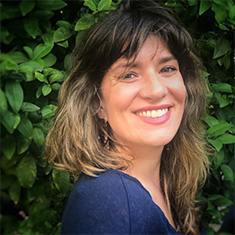 It is widely acknowledged in South African education circles that the country is experiencing a youth reading crisis. A significant percentage of South African students cannot read with comprehension. And since literacy is the foundation for all other academic success, the problem has many repercussions.
It is widely acknowledged in South African education circles that the country is experiencing a youth reading crisis. A significant percentage of South African students cannot read with comprehension. And since literacy is the foundation for all other academic success, the problem has many repercussions.
Kaitlin Alsofrom has a solution, and with the help of the Wall Award prize, she’s prepared to address the South African literacy crisis from the ground up. Her project will research, design, and pilot a set of daily lesson plans and required teaching resources that provides Grade R (the South African equivalent of Kindergarten) teachers with a comprehensive teaching program.
“Up until this point, Grade R interventions across South Africa have not been successful for a variety of reasons,” Alsofrom says. “Intervention materials are overly complicated for teachers to put together and therefore go unused, and there is no mechanism for support or accountability. I have found in my own research that teachers buy into structured learning materials because they are designed to make teachers’ lives easier, and because they are designed to foster professional development for teachers in their own classrooms.”
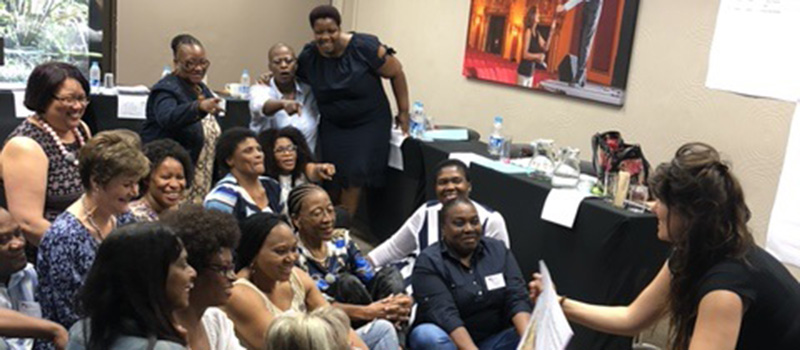
As a literacy and curriculum design specialist for Class Act Educational Services, Alsofrom has specialized in designing low-resource curricular materials for primary and secondary school teachers. The final tangible outcomes of her project will be a high-quality, open-source teaching program consisting of structured policy-aligned lesson plans, teaching resources needed to enact the plans, and a comprehensive training program.
“My interest in this work comes from a deep personal investment in understanding how teachers create change at the classroom level together with a passion for ensuring access to high quality education for all children,” she says.
Mariam Asaad ’14
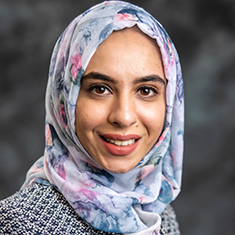 In Pakistani public schools, multi-grade teaching – where one teacher educates multiple grades simultaneously – is a common phenomenon. It’s also a common obstruction to productive learning. Similar to Alsofrom, Mariam Asaad has helped developed a project aimed at increasing student outcomes and teacher productivity.
In Pakistani public schools, multi-grade teaching – where one teacher educates multiple grades simultaneously – is a common phenomenon. It’s also a common obstruction to productive learning. Similar to Alsofrom, Mariam Asaad has helped developed a project aimed at increasing student outcomes and teacher productivity.
The project, which began in 2019, innovates across systems-design, curriculum, and pedagogy and focuses on six priority themes: training, resources, space, rhythm, strategies, and support.
“The project is designed to be simple, easy-to-adopt, and impactful,” Asaad says. “It addresses the system’s current constraints and aims to optimize student outcomes within that instead of functioning on utopian assumptions. It is important to me because it provides an opportunity to actually pilot some of the changes that I wish to see in the system and has the added likelihood of being scaled to millions of children in the country – a prospect I am humbled, scared, and excited by.”
Asaad is a program design advisor for The Citizens Foundation, Pakistan’s largest nonprofit education provider. She is involved with piloting this system redesign in 198 multi-grade teaching schools that the foundation operates under a public-private partnership with the provincial government of Punjab. The project is directly impacting at least 200 principals, 424 teachers, and 33,000 students.
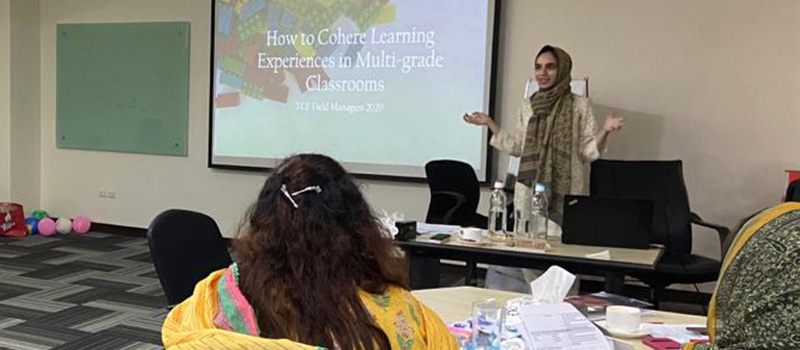
The Wall Award funding will primarily be used for content development and training. Project materials will also be made available in the public domain.
After graduating from Grinnell, Asaad served as a Teach for Pakistan (TFP) fellow for two years where she taught in a government school.
“Thinking back to the overworked and under-motivated government teachers, and teacher-less classrooms I encountered during my time at TFP, I am optimistic about the potential of this project,” she says. “Seeing the impact of COVID-19 related closures in populations with little to no internet access and knowing that this fallout is expected to continue makes me all the more energized about the new design elements that we are exploring this year.”
Wall Service Award winners producing systemic change in education, environment
Juan Carlos Pérez Borja ’11, Juan Castaño ’00, and Zoé Strecker ’88 are the recipients of Grinnell College’s 2019 Joseph F. Wall ’41 Alumni Service Awards. Each will use the $35,000 award to further programs driving social change.
Following is a closer look at the projects of this year’s award winners.
Juan Carlos Pérez Borja ’11
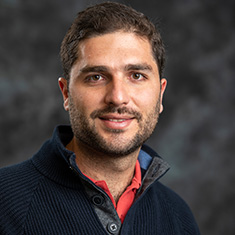 Inspired by Teach for America, Pérez Borja founded Enseña Ecuador (Teach for Ecuador) in 2013 hoping to help solve educational inequality in his home country. In six years, the organization has placed more than 300 fellows into the classroom, where they have taught over 30,000 students.
Inspired by Teach for America, Pérez Borja founded Enseña Ecuador (Teach for Ecuador) in 2013 hoping to help solve educational inequality in his home country. In six years, the organization has placed more than 300 fellows into the classroom, where they have taught over 30,000 students.
Enseña Ecuador has become one of the most successful and known educational organizations in the country, Pérez Borja says. One side effect is the organization has started to receive many requests to start training local teachers, those who are not fellows of the regular program.
As a result, Enseña Ecuador decided to launch a new internal venture to develop a training program for local teachers called Conexión Docente. After a small pilot project earlier this year showed promise, Pérez Borja applied for the Wall Service Award to help fund a full year program for Conexión Docente.
“The positive transformation of schools will be achieved in a faster and stronger way if we are able to combine the innovation, youth, and commitment from our regular fellows with the leadership and commitment from local teachers,” Pérez Borja says. “We see Conexión Docente as a natural complement to the regular work of Enseña Ecuador, and we just needed some fuel to help us prove it.”
The Wall Service Award money will help train and support up to 70 local teachers in the Zamora Chinchipe province. The plan is to execute an intensive training curriculum with these teachers, through monthly training sessions, and then complement that work with on-site visits and classroom observations. The project is slated to begin in March and will continue through April 2021.
“By developing local teaching talent in Zamora Chinchipe, education in the Amazon region will reach sustainable, high-quality levels in the long term,” Pérez Borja says. “The plan also includes training for school authorities, who in the end will hopefully become local drivers of innovation and progress.”
Juan Castaño ’00
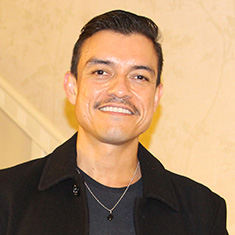 Castaño, executive director of Calpulli Mexican Dance Company in New York City, is gearing up to present Monarcas: Stories of Inspired Immigrants, a full-length, professional dance and music performance that will debut in Queens during spring 2021.
Castaño, executive director of Calpulli Mexican Dance Company in New York City, is gearing up to present Monarcas: Stories of Inspired Immigrants, a full-length, professional dance and music performance that will debut in Queens during spring 2021.
Calpulli – founded by Castaño and Alberto Lopez Herrera in 2003 – produces professional performances with an international touring company, designs arts-in-education experiences, and leads community outreach programing on a year-round basis. All of the programs are bilingual in Spanish and English. Monarcas: Stories of Inspired Immigrants will be based on real-life stories of Mexican American immigrants, who inspire with tenacity and perseverance, even in the face of injustice.
“We push artistic boundaries with each production we create, and Monarcas will be no exception as it will be drawn from true, contemporary stories, and will touch on political issues, which is new territory for us,” Castaño says. “It is deeply meaningful to receive this award from my alma mater, where I first started dancing, for a project that incorporates family stories and touches on themes that are personal to nearly all Mexican Americans, regardless of our status.”
The Wall Service Award will help with project expenses, such as space rental for dance and music rehearsals, dancer and musician wages, commissioning fees, wardrobe design and materials, technical and production expenses, lighting design, and marketing. A tour-ready performance work will be ready in late 2021.
Castaño is at work developing one of the four stories, which is about Mexican immigrants who serve in the U.S. military and the tensions they find there. It will address what it means to fight for an adopted country, and how to cope when racism and politics create barriers among soldiers of different races.
“The story is inspired by my father’s time in the U.S. Army,” Castaño says. “He and his family lived for generations in the border area of northern Mexico and, later, when it became Texas, and this brings a unique perspective to questions of where and how borders are drawn. This section will use folk material from northern Mexico and southern Texas, plus folkloric and contemporary dance, and songs that have relevant themes written by Mexican American immigrants and others.”
Zoé Strecker ’88
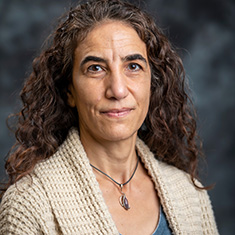 Strecker, an associate professor of art at Transylvania University in Kentucky, has been focused on a long-term, social change project called Lavish! The project is a multi-media, sculptural installation on Pine Mountain that invites a deep look into biodiverse, old growth, temperate zone forests. This work celebrates Pine Mountain, in southeastern Kentucky, as a living treasure.
Strecker, an associate professor of art at Transylvania University in Kentucky, has been focused on a long-term, social change project called Lavish! The project is a multi-media, sculptural installation on Pine Mountain that invites a deep look into biodiverse, old growth, temperate zone forests. This work celebrates Pine Mountain, in southeastern Kentucky, as a living treasure.
“As an artist, a central goal for my current work is to cultivate an understanding of wilderness as essential to humanity,” Strecker says. “Dealing with the crisis of global climate change in an effective, nimble way requires that we look to natural communities for answers.”
The 22-foot diameter handmade, circular wooden structure includes communally embroidered images of old growth forests on diaphanous walls, sound, aroma, and didactic materials. Hanging on the curved, scrim fabric walls are round photos, printed on silk organza fabric, of the ten most visually and biologically distinct natural communities on the mountain. Smaller panels feature close-up images of individual salamanders, blossoms, spiders, and other organisms.
Strecker mixed a soundtrack – bird songs, insect chatter, wind lisping through leaves, and water tumbling over stone – that plays from audio speakers. Scents of rich humus, pungent mushrooms, wet minerals, sugary blossoms and tangy wild ginger waft from aroma diffusers.
Strecker plans to use the Wall Service Award money to hire two part-time workers, an organizational and research manager and an embroidery assistant, as well as two occasional tech consultants. She also plans to invite local participants for two-day, no-cost workshop retreats in the old growth forest.
Strecker continues to seek exhibition and engagement opportunities for Lavish! The award will help her prepare the finished art for exhibition and develop compelling educational materials to accompany it.
“Lavish! creates a way for people to learn more in a deeply contemplative way while creating thoughtful works that draw others into the conversation,” Strecker says. “As a form of activism, it seems gentle to an extreme, but I believe the effect on participants and on viewers of the finished work is powerful and enduring.”
2018 Wall Award winners to build school greenhouse, start intergenerational program
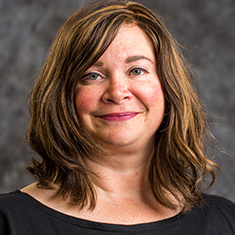
Jennifer Kulik ’94 was moved to tears the first time she was in a classroom where older adults and young people were brought together to share stories and learn from one another.
“I witnessed the power of generations connecting,” she says. “That experience shifted my teaching, curriculum development, and research to focus on intergenerational programs.I started Silver Kite Community Arts to help bring intergenerational arts experiences to older adults in our community, many of whom have little social interaction, visitors, and hope.”
Kulik and Chad (Blietz) Darby ’88 are the recipients of Grinnell College’s 2018 Joseph F. Wall ’41 Alumni Service Award. Each will use the $30,000 award to launch programs benefiting their respective communities in the Pacific Northwest.
Kulik will create an intergenerational program partnering youth with five senior living communities in Seattle. Darby’s project will build and develop a commercial-quality greenhouse for an elementary school outside of Portland.
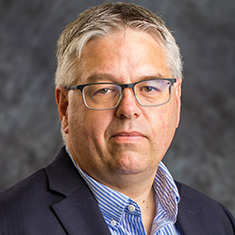
During Grinnell College’s sesquicentennial celebration in 1996, the Wall Award was established as a tribute to the College’s 150-year tradition of social commitment. The award was named in honor of Joseph Wall ’41, professor of history and longtime dean of the College, who inspired an ideal of social responsibility in his students.
Each year, a committee composed of alumni, faculty, and a student choose up to two alumni award recipients and award the $30,000 prizes to either jump-start or complete a project that shows creativity and commitment to effecting positive social change.
Darby, a principal air quality consultant at Maul Foster & Alongi, founded Neighbors Nourishing Communities (NNC) after reading about the poverty problem where he lives in Tualatin, Oregon. NNC aims to ensure everyone has opportunity to access healthy, nutritious food. The organization gives home gardeners all of the seeds and plants for their gardens in exchange for 20 percent of their produce, which is donated to the Tualatin Schoolhouse Pantry, the senior center, and individual families in need.
Darby also helped Bridgeport Elementary School set up a community garden. The students raise produce for personal consumption and to donate to the pantry. About 900 pounds of produce has been donated this year.
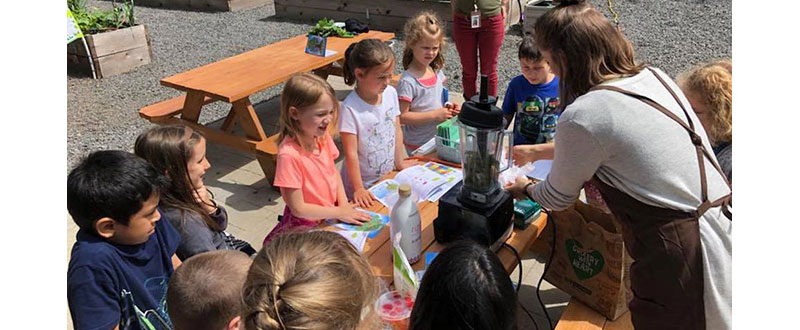
“The local climate in Tualatin is such that produce grows easily during the summer when school is not in session,” Darby says. “Few vegetables are actually harvestable during the school months. A greenhouse would allow students to grow produce year-round.”
Work on the greenhouse is slated to begin in January and be completed by June. It will be large enough to accommodate an entire class.
“The experiences that will be made possible as a result of the greenhouse will quite literally bring learning to life for our students who might otherwise be exposed to some concepts only in theory or in a less practical, meaningful way,” says Bridgepoint Elementary Principal Jordan Mills.
Darby said working in the greenhouse will teach students many skills in nursery operations, seed starting, plant care, and improving yield.
“At the same time that we have a crisis of hunger and poverty in much of the United States, children are becoming less and less familiar with the sources of their food and the methods used to produce it,” he says.
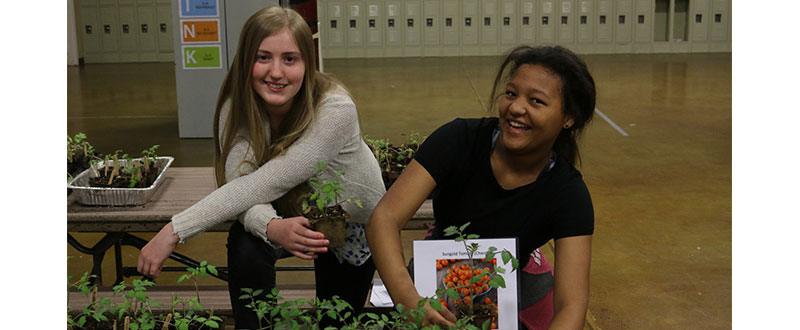
It also will have a tangible effect on curing hunger problems in Tualatin. About 52 percent of the Bridgeport students qualify for free and reduced price lunches. Much of what will be produced can go to a student backpack program, where food-insecure students, who might otherwise go without meals, are given a backpack of food for the weekend.
Similar to Darby, Kulik saw a community need and started an organization to address it. Silver Kite Community Arts specializes in creating intergenerational arts programs and arts experiences for older adults. All of the arts programs use life stories as a source for art making.
With the Wall Award prize, Silver Kite is partnering with Sustainable Housing for the Ageless Generation (SHAG), a Washington nonprofit of affordable rental apartment communities for low- and moderate-income seniors. The program will be piloted in 5 different SHAG communities in the south part of Seattle.
“Based on feedback and learnings gleaned from the pilot programs, we will create an intergenerational program toolkit, which can be used by other SHAG and senior living communities to implement their own version of the program,” Kulik says.
The pilot project started this month and will last until October 2019.
SHAG residents can serve as adult mentors, and share their wisdom, experiences, and knowledge. Research has shown providing that engagement boosts self-confidence, self-esteem, and can instill a new passion for the third act of life, Kulik said.
“The project will also benefit the youth participating, including a possible shift in young people’s perception of aging, an introduction to the possibility of working with older generations as a career option, being mentored, and reflecting upon their relationships with older generations in their families,” Kulik says.
Since 1996, the Wall Award has been presented to 50 individuals who have contributed over $1 million and their time and talents to 44 diverse projects throughout the United States and in five other countries.
Wall Service Award 2017 Recipient
Robert X. Barron ’02
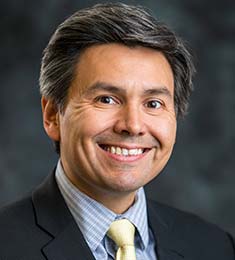 Robert X. Barron ’02, who co-founded the Latino Political Network, recently received the College’s Joseph F. Wall ’41 Alumni Service Award. Barron plans to hire a full-time staff member for LPN with the $30,000 award.
Robert X. Barron ’02, who co-founded the Latino Political Network, recently received the College’s Joseph F. Wall ’41 Alumni Service Award. Barron plans to hire a full-time staff member for LPN with the $30,000 award.
A non-partisan organization, LPN strives to educate and empower Latinos to serve at all levels of elected office throughout Iowa. Iowa continues to become more diverse, but the elected leadership does not yet reflect this diversity. LPN is the only group in Iowa committed to the organization and civic empowerment of Latinos, Barron says. He brings extensive political expertise and experience to LPN after working for many years for former U.S. Sen. Tom Harkin, a democrat from Iowa.
The Des Moines Register describes LPN as a “refreshingly grassroots political interlude, focused on the most basic leadership roles that touch our everyday lives. … Instead of the big-picture bluster of the Iowa caucuses presidential horse race, this was a close-up view of its undercurrents: This effort hopes to generate enough momentum for a larger wave that eventually sweeps more Latinos into the Legislature and other higher offices.”
“I am honored by Grinnell College’s faith in me and support of the work of the Latino Political Network,” Barron says. “This award gives the LPN a transformational boost for our work to educate and empower new leaders in Iowa. As a proud alumnus, I am thankful to the faculty, staff, and my fellow students for providing me with a learning environment that was both challenging and nurturing. My work since graduation is a testament to their impact on me.”
In addition to co-founding LPN, Barron is special assistant for government and community relations to Grand View University President Kent Henning. In this role, Barron represents Grand View before elected officials and works to build relationships with the community on behalf of students, faculty and staff. A native and resident of Des Moines, Barron has served on the Des Moines School Board since 2013 and recently was elected to a new four-year term.
As part of its sesquicentennial celebration in 1996, Grinnell College established the Wall Service Award as a tribute to the College’s 150-year tradition of social commitment. The award was named in honor of Joseph Wall ’41, who inspired his students to embrace the ideal of service through his work as a professor of history and longtime dean of the College.
Wall Service Award 2016 Recipient
Renata Heberton ’06
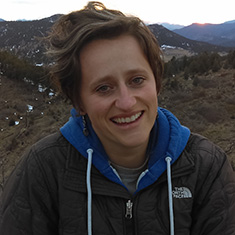 Heberton’s award will fund The Pillar Project, a new extension of Angelica Village. Created in 2014, Angelica Village offers shelter, food, and sustained support to people who experience homelessness through poverty or displacement by war and violence. This proposal for is for The Pillar Project, a supportive services and mentorship project that will expand the capability of Angelica Village to build sustainable living and support the life goals and dreams for all of its residents. Current services include food, shelter, general acculturation support, a therapeutic environment, emotional support, access to spiritual and religious communities, and individual plans for education and employment. In order to support the self-efficacy and personal, educational, and employment development for the resident partners of Angelica village, The Pillar Project will provide personal and community support and mentoring. Specifically, The Pillar Project will support and advocate for unaccompanied refugee minors, young refugee adults, and formerly homeless adults to increase stability, connect with appropriate resources, provide enrichment, and identify and work towards life goals.
Heberton’s award will fund The Pillar Project, a new extension of Angelica Village. Created in 2014, Angelica Village offers shelter, food, and sustained support to people who experience homelessness through poverty or displacement by war and violence. This proposal for is for The Pillar Project, a supportive services and mentorship project that will expand the capability of Angelica Village to build sustainable living and support the life goals and dreams for all of its residents. Current services include food, shelter, general acculturation support, a therapeutic environment, emotional support, access to spiritual and religious communities, and individual plans for education and employment. In order to support the self-efficacy and personal, educational, and employment development for the resident partners of Angelica village, The Pillar Project will provide personal and community support and mentoring. Specifically, The Pillar Project will support and advocate for unaccompanied refugee minors, young refugee adults, and formerly homeless adults to increase stability, connect with appropriate resources, provide enrichment, and identify and work towards life goals.
Wall Service Award 2015 Recipients
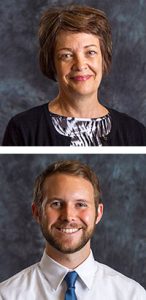
Tracy Huling ’77 and Brian Buckley ’14
Huling and Buckley will use the award to support their organization, the Prison Public Memory Project (PPMP). In its pilot site in Hudson, N.Y., the program works with community members and collaborating scholars and artists to discover, preserve, interpret, and present the rich and complex history of the prison there, honor the memories of former prisoners and prison workers, and use the past to imagine a new future for the town when its historic prison closes. Funds from the award will be used to fortify the program already in place in Hudson, developing a permanent site of prison memory there, organized and directed by Buckley and to support the PPMP’s founder, Huling, as she expands the reach of the organization to other rural prison communities in the United States.Alvin Irby ’07
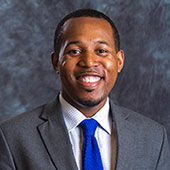 Irby, who lives in New York City, will use his award to expand his Barbershop Books program, which places child-friendly reading spaces in barbershops. The program will to improve black boys’ access to engaging books and increase the amount of time they read for fun. Creating reading spaces in 20 additional barbershops will enable Barbershop Books to reach 800 young male readers in two Brooklyn communities. By providing year-round access to culturally relevant, age-appropriate, gender-responsive children’s books in a traditionally male space, Irby hopes to help young black boys identify as readers.
Irby, who lives in New York City, will use his award to expand his Barbershop Books program, which places child-friendly reading spaces in barbershops. The program will to improve black boys’ access to engaging books and increase the amount of time they read for fun. Creating reading spaces in 20 additional barbershops will enable Barbershop Books to reach 800 young male readers in two Brooklyn communities. By providing year-round access to culturally relevant, age-appropriate, gender-responsive children’s books in a traditionally male space, Irby hopes to help young black boys identify as readers.
Bryan Boyce ’08
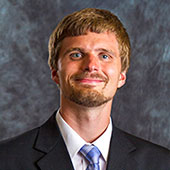 Boyce will fund his project, Cow Tipping Press, a program that teaches creative writing for adults with developmental disabilities and shares their work with a broad audience. The funding will be used to train five additional instructors in strategies for teaching diverse learners, reaching 75 students and publishing their writing for hundreds of readers in the first year. By offering an imaginative outlet, Boyce will provide a platform for society to hear people with developmental disabilities speak for themselves in a medium that is often used to speak about them
Boyce will fund his project, Cow Tipping Press, a program that teaches creative writing for adults with developmental disabilities and shares their work with a broad audience. The funding will be used to train five additional instructors in strategies for teaching diverse learners, reaching 75 students and publishing their writing for hundreds of readers in the first year. By offering an imaginative outlet, Boyce will provide a platform for society to hear people with developmental disabilities speak for themselves in a medium that is often used to speak about themWall Service Award 2014 Recipients
Laura Ruth Johnson ’92
Laura Ruth Johnson, a 1992 graduate who lives in Chicago. Johnson will use her $25,000 Wall Service Award to support Proyecto Atabey, a project she founded to provide mentorship and support to young Latina and African-American mothers in Humboldt Park, Ill. This intergenerational mentoring project will take place at an alternative high school serving young people aged 16-21. Through Projecto Atabey, mothers in the community who were themselves teen parents will offer presentations sharing their experiences and advice. The project will also provide mentoring, activities and workshops designed to help participants finish high school, become more independent, and achieve educational, professional and personal success.
Scott R. Porter ’80
Scott R. Porter, a 1980 graduate who now lives in Orlando, Fla. Porter will use his $25,000 Wall Award to expand two complementary programs that he leads in Orlando, Fla., to help disabled athletes access adaptive sports equipment. Through the first program, Porter and other challenged athletes operate adaptive sports clinics that help recently disabled athletes discover and become active in new sports activities. The second project will add five handcycles to an equipment-lending program that allows challenged athletes to experiment with equipment before applying for funding to purchase their own handcycles. Together, the two programs help newly disabled individuals select and acquire adaptive sports equipment that leads to a higher quality of life, a sense of accomplishment, and the possibility of hope after accidents and loss.
Wall Service Award 2013 Recipients
Jenny Dale ’06
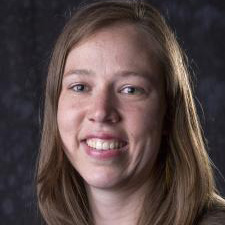 Jenny Dale ’06 will use her $25,000 Joseph F. Wall ’41 Sesquicentennial Alumni Service Award to support Una Vida Digna (A Dignified Life), a project of Desarollo Sostenible para Guatemala/Sustainable Development for Guatemala (DESGUA). The goal of this project is to build sustainable support mechanisms that enable young returned migrants to productively pursue personal development and establish their livelihood in the western highland region of Guatemala. They plan to accomplish this through relationship building, leadership development, educational and skills building workshops, internships, cultural orientation, and psycho-social assistance. A recipient of an Alumni Senior Award when she graduated from Grinnell, Jenny has been deeply engaged in issues of immigration and human rights in the faith community of Chicago; she has recently relocated to Guatemala, where she now makes her home.
Jenny Dale ’06 will use her $25,000 Joseph F. Wall ’41 Sesquicentennial Alumni Service Award to support Una Vida Digna (A Dignified Life), a project of Desarollo Sostenible para Guatemala/Sustainable Development for Guatemala (DESGUA). The goal of this project is to build sustainable support mechanisms that enable young returned migrants to productively pursue personal development and establish their livelihood in the western highland region of Guatemala. They plan to accomplish this through relationship building, leadership development, educational and skills building workshops, internships, cultural orientation, and psycho-social assistance. A recipient of an Alumni Senior Award when she graduated from Grinnell, Jenny has been deeply engaged in issues of immigration and human rights in the faith community of Chicago; she has recently relocated to Guatemala, where she now makes her home.
Latona Giwa ’09
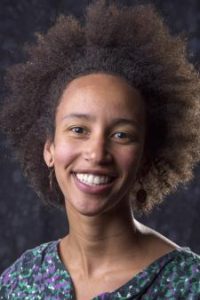 Latona Giwa ’09 is the founder of the Birthmark Doula Collective (BDC) in New Orleans. BDC doulas meet with pregnant women and their families in their homes during pregnancy, support women throughout labor and delivery, assist with breastfeeding in the hospital, and conduct postpartum home visits with the new family. Using a $25,000 Joseph F. Wall ’41 Sesquicentennial Alumni Service Award, Latona will launch the New Orleans Community Doula Program, allowing BDC to provide quality doula support on a larger, more systematic, and better documented scale. In doing so, they will build essential relationships with area hospitals and insurance companies, an important step in making doula support part of the mainstream perinatal care in the region. Latona received an Alumni Senior Award, and moved to New Orleans after graduation as a Grinnell Corps fellow. She is currently studying to become a nurse midwife through the Louisiana State University Health Science Center in New Orleans.
Latona Giwa ’09 is the founder of the Birthmark Doula Collective (BDC) in New Orleans. BDC doulas meet with pregnant women and their families in their homes during pregnancy, support women throughout labor and delivery, assist with breastfeeding in the hospital, and conduct postpartum home visits with the new family. Using a $25,000 Joseph F. Wall ’41 Sesquicentennial Alumni Service Award, Latona will launch the New Orleans Community Doula Program, allowing BDC to provide quality doula support on a larger, more systematic, and better documented scale. In doing so, they will build essential relationships with area hospitals and insurance companies, an important step in making doula support part of the mainstream perinatal care in the region. Latona received an Alumni Senior Award, and moved to New Orleans after graduation as a Grinnell Corps fellow. She is currently studying to become a nurse midwife through the Louisiana State University Health Science Center in New Orleans.Wall Service Award 2012 Recipients
Amy Smith ’95
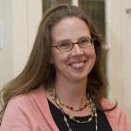 Amy Smith ’95 is a professor of psychology at San Francisco State University (SFSU).
Amy Smith ’95 is a professor of psychology at San Francisco State University (SFSU).
She will utilize the Wall Award to develop and implement a “bridge course” at SFSU to assist formerly incarcerated individuals returning to the community from prison, while linking the work of three agencies providing support throughout the transition process.
The course will address issues related to transition and social justice that are rarely explicitly addressed, firmly based in the experience and expertise of numerous currently and formerly incarcerated individuals.
Amy will also work closely with these individuals to create a curriculum that builds upon the social justice course currently being taught inside San Quentin State Prison.
Chase Strangio ’04
 Chase Strangio ’04 is the founder of the Lorena Borjas Community Fund in Queens, New York, which provides support to low-income LGBTQ immigrants to avoid the collateral consequences associated with criminal convictions, jail time, and court appearances.
Chase Strangio ’04 is the founder of the Lorena Borjas Community Fund in Queens, New York, which provides support to low-income LGBTQ immigrants to avoid the collateral consequences associated with criminal convictions, jail time, and court appearances.
Chase, a staff attorney at the Sylvia Rivera Law Project, will use the Wall Award funds to provide financial support for pending cases, direct and full bail assistance, and other forms of support to mitigate the burdens associated with pending cases and trials, such as child care, court clothing, and court accompaniment.
Wall Service Award 2011 Recipients
Jefferson Mok ’02
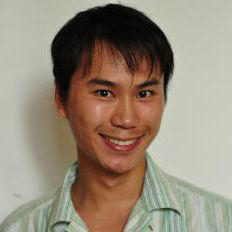 Jeff Mok ’02 received a Wall Alumni Award to support his work with Imagine Burundi, the first locally-produced English-language radio program in that African nation. It airs weekly and employs the medium of language and radio to bridge the divide between post-conflict recovery and peaceful socio-economic progress in Burundi. The show explores issues of cultural awareness, social cohesion, individual enterprise and local investment in the style of literary non-fiction and investigative reporting. Its ultimate goal is to create a sustainable public forum and increase community participation in the sharing of perspectives and individual experiences of life in Burundi. Imagine Burundi hopes to inspire its listeners through inventive explorations of daily encounters and help expand English-language radio programming, which will be instrumental to meeting Burundi’s ambitions of flourishing in the East African Community. Jeff will use the Wall Award funds to support the radio show, purchase equipment, and train Burundians to continue his work after he departs that country in 2012.
Jeff Mok ’02 received a Wall Alumni Award to support his work with Imagine Burundi, the first locally-produced English-language radio program in that African nation. It airs weekly and employs the medium of language and radio to bridge the divide between post-conflict recovery and peaceful socio-economic progress in Burundi. The show explores issues of cultural awareness, social cohesion, individual enterprise and local investment in the style of literary non-fiction and investigative reporting. Its ultimate goal is to create a sustainable public forum and increase community participation in the sharing of perspectives and individual experiences of life in Burundi. Imagine Burundi hopes to inspire its listeners through inventive explorations of daily encounters and help expand English-language radio programming, which will be instrumental to meeting Burundi’s ambitions of flourishing in the East African Community. Jeff will use the Wall Award funds to support the radio show, purchase equipment, and train Burundians to continue his work after he departs that country in 2012.
Leah Bry ’04
 Leah Bry ’04 received a $25,000 grant to support a Denver organization she founded called GreenLeaf. GreenLeaf engages youth in urban agriculture, farming on available lots in neighborhoods that do not have access to fresh fruits and vegetables. At GreenLeaf, young people ages 14 – 18 earn a fair wage while they grow food for their communities and explore issues of health, nutrition, and social justice. Their diverse crew of youth interns drives GreenLeaf’s innovative and project-based curriculum of intensive leadership development and asset-based community building. The young people also grow, challenging themselves and each other in an environment that creates lasting, just, and sustainable social change. GreenLeaf’s summer program is the keystone of their work, and will use the Wall Alumni Service Award to fund their summer 2011 project, which represents a unique moment of change, growth, and opportunity for the young organization.
Leah Bry ’04 received a $25,000 grant to support a Denver organization she founded called GreenLeaf. GreenLeaf engages youth in urban agriculture, farming on available lots in neighborhoods that do not have access to fresh fruits and vegetables. At GreenLeaf, young people ages 14 – 18 earn a fair wage while they grow food for their communities and explore issues of health, nutrition, and social justice. Their diverse crew of youth interns drives GreenLeaf’s innovative and project-based curriculum of intensive leadership development and asset-based community building. The young people also grow, challenging themselves and each other in an environment that creates lasting, just, and sustainable social change. GreenLeaf’s summer program is the keystone of their work, and will use the Wall Alumni Service Award to fund their summer 2011 project, which represents a unique moment of change, growth, and opportunity for the young organization.
Wall Service Award 2010 Winners
Catherine Foster Alter ’60
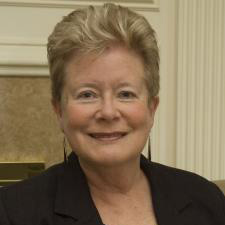 Catherine Foster Alter ’60 will use her Wall Alumni Service Award to provide start up funds for Read to Succeed Asheville, an after-school phonics reading program for children in public housing in Asheville, NC. Throughout her 40-year social work career, Catherine worked to build networks and collaborations for social change at the community level – strategies she will apply to the Asheville education project in her “retirement”.
Catherine Foster Alter ’60 will use her Wall Alumni Service Award to provide start up funds for Read to Succeed Asheville, an after-school phonics reading program for children in public housing in Asheville, NC. Throughout her 40-year social work career, Catherine worked to build networks and collaborations for social change at the community level – strategies she will apply to the Asheville education project in her “retirement”.
Rebecca Mwase ’07
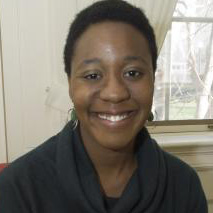 Rebecca Mwase ’07 will use her Wall Alumni Service Award to expand involvement in the Individuals Relating and Overcoming Conflict (iROC) program for at-risk youth at a New Orleans high school. Rebecca, who is an arts educator, will teach students how to create healthy relationships through theatre games, writing, skits, and other arts-related activities.
Rebecca Mwase ’07 will use her Wall Alumni Service Award to expand involvement in the Individuals Relating and Overcoming Conflict (iROC) program for at-risk youth at a New Orleans high school. Rebecca, who is an arts educator, will teach students how to create healthy relationships through theatre games, writing, skits, and other arts-related activities.Wall Service Award 2009 Recipient
Kirsten Anderson ’00
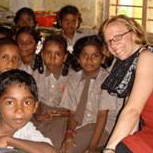 Kirsten Anderson ’00 will use her Wall Alumni Service Award to support her work as a William J. Clinton Service Fellow at AID India in Tamil Nadu, India.
English has been a co-official language in India since Independence and continues to be a national link language of the educated and elite, fostered by the private English-medium schools they typically attend. Disadvantaged populations, however, attend government, or vernacular-medium schools, where English is a subject taught a few times a week. Ultimately, this dual education system results in a linguistic gap when students enter higher education, which is predominantly English-medium. Recently, the state of Tamil Nadu has put an increased focus on English education, aimed at narrowing the bilingual gap, but resources are limited and teachers often lack fluency in English. Kirsten’s project will provide primary-age students with tools to begin reading through ha time-bound English phonics module. The Wall Alumni Service Award will help subsidize Kirsten’s work as a William J. Clinton Fellow. In addition, it will provide funding for the implementation of the program, which will be tested in 50 rural and urban government schools under the auspices of AID India, an education NGO based in Tamil Nadu. Lastly, the award will allow for the designing and printing of a teacher’s guide, flashcards, picture cards, story cards, a blending tool, activity workbooks, game boards, and the production of a DVD. Based on initial evaluation results with a focus class, it is expected that this program will improve the reading skills of thousands of children across the state of Tamil Nadu.
Kirsten’s Wall Award project blog
Kirsten Anderson ’00 will use her Wall Alumni Service Award to support her work as a William J. Clinton Service Fellow at AID India in Tamil Nadu, India.
English has been a co-official language in India since Independence and continues to be a national link language of the educated and elite, fostered by the private English-medium schools they typically attend. Disadvantaged populations, however, attend government, or vernacular-medium schools, where English is a subject taught a few times a week. Ultimately, this dual education system results in a linguistic gap when students enter higher education, which is predominantly English-medium. Recently, the state of Tamil Nadu has put an increased focus on English education, aimed at narrowing the bilingual gap, but resources are limited and teachers often lack fluency in English. Kirsten’s project will provide primary-age students with tools to begin reading through ha time-bound English phonics module. The Wall Alumni Service Award will help subsidize Kirsten’s work as a William J. Clinton Fellow. In addition, it will provide funding for the implementation of the program, which will be tested in 50 rural and urban government schools under the auspices of AID India, an education NGO based in Tamil Nadu. Lastly, the award will allow for the designing and printing of a teacher’s guide, flashcards, picture cards, story cards, a blending tool, activity workbooks, game boards, and the production of a DVD. Based on initial evaluation results with a focus class, it is expected that this program will improve the reading skills of thousands of children across the state of Tamil Nadu.
Kirsten’s Wall Award project blogWall Service Award 2008 Recipients
Elizabeth Powley ’93 & John Fuson ’93
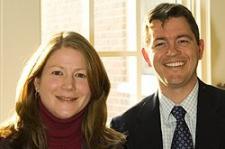 Elizabeth Powley ’93 and John Fuson ’93 will use their joint Wall Alumni Service Award to support a non-profit organization called Every Child is My Child, which provides education access to children in Burundi and Rwanda.
Elizabeth Powley ’93 and John Fuson ’93 will use their joint Wall Alumni Service Award to support a non-profit organization called Every Child is My Child, which provides education access to children in Burundi and Rwanda.
Powley founded Every Child is My Child, a Washington, D.C.-based organization, in 2006, with Fuson as board president. The Wall Award funds will help to start a second school in the African region.
Powley was recognized for her organization’s work with a Grinnell Alumni Award in 2007
Kara Murphy ’97
 Kara Murphy ’97 will use her Wall Alumni Service Award to fund a medication assistance coordinator position for Access DuPage, a program for low-income, uninsured residents of DuPage County, Ill.
Kara Murphy ’97 will use her Wall Alumni Service Award to fund a medication assistance coordinator position for Access DuPage, a program for low-income, uninsured residents of DuPage County, Ill.
Murphy, a public healthcare administrator, has served as managing director of operations for Access DuPage for the past four years. The position she proposed will help to connect uninsured patients in need of medications with free or cost-assisted pharmaceutical programs.
For more information about Access DuPage, visit their website: www.accessdupage.org
Wall Service Award 2007 Recipients
Alice Gates ’97
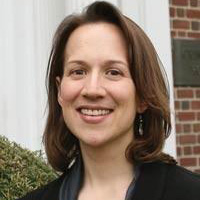 Alice Gates ’97 will use her Wall Award to fund the “Advancing Leadership for Worker’s Rights” project for Washtenaw County Worker’s Center (WCWC) in Michigan. As a co-founder of WCWC, Gates wanted to create “a safe space for low-wage workers to organize to find collective solutions to workplace problems.”
Alice Gates ’97 will use her Wall Award to fund the “Advancing Leadership for Worker’s Rights” project for Washtenaw County Worker’s Center (WCWC) in Michigan. As a co-founder of WCWC, Gates wanted to create “a safe space for low-wage workers to organize to find collective solutions to workplace problems.”
Her Wall Award will allow the WCWC to train community leaders in basic organizing skills through internships and externships with established social justice organizations. The award will also support training for the board of directors to encourage the sustainability of the organization.
“Our efforts up to now have been focused on identifying workplace problems and providing support for workers,” Gates says. “Developing a base of trained, confident leaders will help us create a power base prepared to advance workers’ rights, improve wages and conditions, and guarantee a meaningful voice in the conditions of work.”
Benjamin Hodgdon ’96
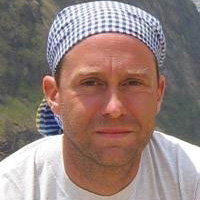 Benjamin Hodgdon ’96 will use his Wall Award to fund his role as a project coordinator in Oaxaca State, Mexico. In Oaxaca, Hodgdon works with the Autonomous Group for Environmental Research (GAIA), a local Mexican non-governmental organization, to coordinate the initiation of community forestry with a group of Zapotec indigenous villages in the Sierra Sur area of the state.
Benjamin Hodgdon ’96 will use his Wall Award to fund his role as a project coordinator in Oaxaca State, Mexico. In Oaxaca, Hodgdon works with the Autonomous Group for Environmental Research (GAIA), a local Mexican non-governmental organization, to coordinate the initiation of community forestry with a group of Zapotec indigenous villages in the Sierra Sur area of the state.
Hodgdon sees community forestry as a way to mitigate the negative effects of large-scale commercial logging while providing a vehicle for community livelihood improvement. Working with GAIA, Hodgdon hopes to initiate community forestry in these communities. By the end of the year, they plan to have a locally owned forest management plan in place. “Real success, however,” says Hodgdon, ” … [means] that a functioning community forestry enterprise is still up and running and providing benefits to locals in 50 or 100 years.”
Dave Calvert ’75
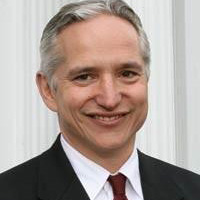 With the help of the Wall Award, David G. Calvert ’75 plans to launch Jóvenes Constructores de Centroamérica, an initiative that will provide job training, life skills, and community service opportunities for 5,000 unemployed youth in four countries in Central America. The project has a five-year projected budget of $15 million dollars, and Calvert is “delighted” that the first donation came from Grinnell.
With the help of the Wall Award, David G. Calvert ’75 plans to launch Jóvenes Constructores de Centroamérica, an initiative that will provide job training, life skills, and community service opportunities for 5,000 unemployed youth in four countries in Central America. The project has a five-year projected budget of $15 million dollars, and Calvert is “delighted” that the first donation came from Grinnell.
Jóvenes Constructores de Centroamérica (JCC) is a formal initiative of YouthBuild USA, and will provide work and training opportunities for low-income and unemployed youth in communities in Guatemala, El Salvador, Honduras, and Nicaragua. The region has been afflicted with problems of violence and gang activity since the mid-1990s, leading to an “anti-youth backlash” from community members and local government, and significant youth emigration. Calvert sees JCC as a means to provide constructive alternatives for youth in the region. Working with allies in the government, business, and civil sectors, the program will establish 250 locally operated community reconstruction projects over the next five years to provide training and life skills for young people, producing 750 community improvement works.
“Central American youth desire, but lack, options to stay and invest in their home communities.” Calvert states. “This is something the region needs and will rally around, and we’ll help mobilize the resources, energy, and vision to make it happen.”
Calvert invites Grinnellians of any age who are interested in getting involved to contact him at dgcalvert@gmail.com.
Wall Service Award 2006 Recipients
Karry Coon-Carr ’84
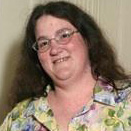 Karry Coon-Carr ’84, co-founder of Skills and Friends, will use her $20,000 Wall Award to add to the mailing list, expand the fundraising outreach, and increase the organization’s event offerings. Skills and Friends is a social club designed to “break the cycle of isolation and loneliness” in which many of its autistic adult clients and their families felt. Before this Wall Award, this program depended on volunteers and a couple thousand dollars per year to provide daytrips, picnics, parties, and dances.
Karry Coon-Carr ’84, co-founder of Skills and Friends, will use her $20,000 Wall Award to add to the mailing list, expand the fundraising outreach, and increase the organization’s event offerings. Skills and Friends is a social club designed to “break the cycle of isolation and loneliness” in which many of its autistic adult clients and their families felt. Before this Wall Award, this program depended on volunteers and a couple thousand dollars per year to provide daytrips, picnics, parties, and dances.
“A lot of people are forming friendships they never had before,” says Koon-Carr. “And people who’ve been a part of the club for a while can now welcome generations of newcomers to the club, because their level of comfort and their ability to talk to other people has just gone through the roof.” Karry says Skills and Friends also gives many family members of developmentally disabled people a break from the stress of being caregivers, and the joy of seeing their loved ones develop a measure of independence.
Luna Ranjit ’00
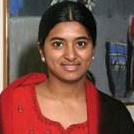 In 2005, Luna Ranjit ’00 founded Adhikaar, a New York-based nonprofit organization working to promote human rights and social justice in Nepal. Ranjit saw that Nepalis were often underserved or not served at all by organizations nominally dedicated to helping South Asians.
In 2005, Luna Ranjit ’00 founded Adhikaar, a New York-based nonprofit organization working to promote human rights and social justice in Nepal. Ranjit saw that Nepalis were often underserved or not served at all by organizations nominally dedicated to helping South Asians.
Ranjit will use the Wall Award money to fund a “Know Your Rights and Resources” campaign with the aim of providing New York-area Nepalis with workshops, health fairs, and information to help them cross into new-immigrant life. Ranjit says, “I will draw upon the two things I took from Grinnell – my dream of making a positive difference in the world, and the confidence that I can do it.”
Wall Service Award 2005 Recipients
Daniel Werner ’91
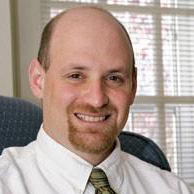 Daniel Werner ’91 used his Wall Service Award for his work with the Workers’ Rights Law Center of New York’s community legal education project. The Workers’ Rights Law Center educates low-wage and immigrant workers on labor laws that are frequently violated. Additionally, the WRLC also provides free legal services to indigent workers who may not know that the law protects them.
One program through the WRLC is the Community Legal Education Project. This project trains local workers to lead workshops that will educate other low-wage and immigrant workers about their rights under the law. These “know your rights” workshops are conducted languages understood by the workers and are accessible, interactive, and practical. The WRLC pays the trainers a living wage for their work with the program.
With his Wall Service Award, Werner strived to achieve the following: To educate workers about their legal rights; to see workers successfully fight for their rights against unscrupulous employers; to discourage employers from mistreating workers, and to see quality of jobs in the region improve; and to increase workers’ sense of empowerment in their workplaces and communities.
Daniel Werner ’91 used his Wall Service Award for his work with the Workers’ Rights Law Center of New York’s community legal education project. The Workers’ Rights Law Center educates low-wage and immigrant workers on labor laws that are frequently violated. Additionally, the WRLC also provides free legal services to indigent workers who may not know that the law protects them.
One program through the WRLC is the Community Legal Education Project. This project trains local workers to lead workshops that will educate other low-wage and immigrant workers about their rights under the law. These “know your rights” workshops are conducted languages understood by the workers and are accessible, interactive, and practical. The WRLC pays the trainers a living wage for their work with the program.
With his Wall Service Award, Werner strived to achieve the following: To educate workers about their legal rights; to see workers successfully fight for their rights against unscrupulous employers; to discourage employers from mistreating workers, and to see quality of jobs in the region improve; and to increase workers’ sense of empowerment in their workplaces and communities.
Janet Olson ’02
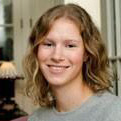 As a Peace Corps volunteer in Ecuador, Janet McLaughlin Olson ’02 and her husband Pete Olson ’02 learned about the indigenous people there. Modernization has pushed the Shuar people and their culture into a state of decline.
Olson hoped to rescue components of Shuar culture by preserving traditional craftsmanship, and to provide a source of income for marginalized people. The program’s emphasis on women was intended to help them build a sense of worth and identity apart from their husbands.
Olson’s project accomplished these goals by combining cultural preservation with income generation. “I developed an alliance with several community members who started a corporation dedicated to preserving Shuar culture, improving the quality of life for the Shuar, and promoting their social development,” Olson explained to Grinnell Magazine.
The project involved a series of workshops, led by Shuar elders, to teach other Shuar how to make traditional artisan goods, as well as basic income management skills. “The combination of a dedicated Shuar organization [Corporación UNSA] with the knowledge and resources that Pete and I have will produce results much greater than each of us working separately,” she says.
As a Peace Corps volunteer in Ecuador, Janet McLaughlin Olson ’02 and her husband Pete Olson ’02 learned about the indigenous people there. Modernization has pushed the Shuar people and their culture into a state of decline.
Olson hoped to rescue components of Shuar culture by preserving traditional craftsmanship, and to provide a source of income for marginalized people. The program’s emphasis on women was intended to help them build a sense of worth and identity apart from their husbands.
Olson’s project accomplished these goals by combining cultural preservation with income generation. “I developed an alliance with several community members who started a corporation dedicated to preserving Shuar culture, improving the quality of life for the Shuar, and promoting their social development,” Olson explained to Grinnell Magazine.
The project involved a series of workshops, led by Shuar elders, to teach other Shuar how to make traditional artisan goods, as well as basic income management skills. “The combination of a dedicated Shuar organization [Corporación UNSA] with the knowledge and resources that Pete and I have will produce results much greater than each of us working separately,” she says.Wall Service Award 2004 Recipients
David Simmons ’88
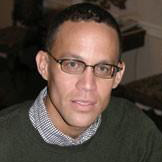 David Simmons ’88 used his Wall Award to establish a community center in the Cibao region of the Dominican Republic to support Haitian agricultural workers. Levels of service development, infrastructure, government and non-government presence, and livelihood opportunities in bateys (sugarcane worker communities) were low. The community Simmons assisted, located near the Sanjan River, made up for its lack of material resources through an abundance of human resources like the youths’ search for knowledge and a high level of social organization.
It’s two active community organizations, the Organization of Haitian Workers and Valiant Women, did not have access to a suitable meeting place. Simmons acted as a facilitator in the community center project by “working with the community to help them develop solutions to the challenges with which they’re faced.” He goes on to say, “The community is more than prepared to handle the day-to-day operations and maintenance of the center.”
Simmons co-founded a community-based organization, Zanmi Batey (‘Friend of the Batey’ in Haitian Kreyol), to help bring continued aid to this and other batey communities in the Cibao region.
David Simmons ’88 used his Wall Award to establish a community center in the Cibao region of the Dominican Republic to support Haitian agricultural workers. Levels of service development, infrastructure, government and non-government presence, and livelihood opportunities in bateys (sugarcane worker communities) were low. The community Simmons assisted, located near the Sanjan River, made up for its lack of material resources through an abundance of human resources like the youths’ search for knowledge and a high level of social organization.
It’s two active community organizations, the Organization of Haitian Workers and Valiant Women, did not have access to a suitable meeting place. Simmons acted as a facilitator in the community center project by “working with the community to help them develop solutions to the challenges with which they’re faced.” He goes on to say, “The community is more than prepared to handle the day-to-day operations and maintenance of the center.”
Simmons co-founded a community-based organization, Zanmi Batey (‘Friend of the Batey’ in Haitian Kreyol), to help bring continued aid to this and other batey communities in the Cibao region.
Jane Hayes ’58
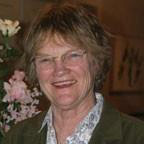 Jane Hayes ’58 will use her Wall Award to fund a halfway house for Brazilian adolescent males to help them stay sober. In Brazil, drugs and alcohol can be acquired easily and cheaply since this country is on the international drug route to Europe and the United States.
While in residence, the boys will study in public schools, attend vocational courses, and participate in cultural and sports activities available in the neighborhood and city. These opportunities will prepare them to make the transition to participating citizens with all the rights, privileges, and obligations of other youth their age.
Hayes says, “without this specific project, the chances of long-term recovery are practically nil for these youth. Without this link between treatment and a return to society, they all return to the slums from which they came and the vicious cycle continues and in most cases, ends in death. We see clearly that in order to really save these young lives, long term support must be provided throughout adolescence and until healthy options are available.”
Jane Hayes ’58 will use her Wall Award to fund a halfway house for Brazilian adolescent males to help them stay sober. In Brazil, drugs and alcohol can be acquired easily and cheaply since this country is on the international drug route to Europe and the United States.
While in residence, the boys will study in public schools, attend vocational courses, and participate in cultural and sports activities available in the neighborhood and city. These opportunities will prepare them to make the transition to participating citizens with all the rights, privileges, and obligations of other youth their age.
Hayes says, “without this specific project, the chances of long-term recovery are practically nil for these youth. Without this link between treatment and a return to society, they all return to the slums from which they came and the vicious cycle continues and in most cases, ends in death. We see clearly that in order to really save these young lives, long term support must be provided throughout adolescence and until healthy options are available.”Wall Service Award 2003 Winners
Sabrina Eagan ’96
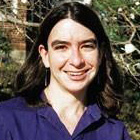 Sabrina Eagan ’96 received a $20,000 Wall Service Award that she will devote to improving adolescent health services and education in Komamboga, Uganda. A steering committee made up of adults and teenagers will oversee the development of community projects related to adolescent sexual health, and an association for teachers of reproductive health in the area will exchange information and collaborate on related activities. Monthly workshops for teenagers will focus on sexual health issues, and young peer educators will be trained to teach other teens about healthy behaviors. And finally, an adolescent health center is now open and operating in Komamboga; Eagan hopes to continue to expand the services available there.
Although Eagan is deeply involved in the project now, she is planning for a future when the community will continue the work without her. “One of the priorities throughout the work is to build it with the community as a foundation-not me alone,” she says.
Sabrina Eagan ’96 received a $20,000 Wall Service Award that she will devote to improving adolescent health services and education in Komamboga, Uganda. A steering committee made up of adults and teenagers will oversee the development of community projects related to adolescent sexual health, and an association for teachers of reproductive health in the area will exchange information and collaborate on related activities. Monthly workshops for teenagers will focus on sexual health issues, and young peer educators will be trained to teach other teens about healthy behaviors. And finally, an adolescent health center is now open and operating in Komamboga; Eagan hopes to continue to expand the services available there.
Although Eagan is deeply involved in the project now, she is planning for a future when the community will continue the work without her. “One of the priorities throughout the work is to build it with the community as a foundation-not me alone,” she says.
Theodore Massey ’00
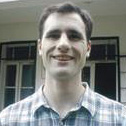 Theodore Massey ’00, a Peace Corps volunteer in Stepanavan, Armenia, will use his $20,000 Wall Award to construct and furnish a community resource center in Stepanavan. Complete with a seminar room for community meetings, computers with Internet access, an updated database of Armenian legal business information, a professional resource library, and a library of English-language fiction for local students, Massey hopes to improve the community’s enthusiasm and access to information following the 1988 earthquake.
Currently, Ted is involved in every aspect of the project, from monitoring construction, to procurement of supplies, to public relations. “My highest priority right now, though, is to get the NGO [non-governmental organization] thinking about programs we can hold after the center is built. A year from now, my Peace Crops service will be wrapping up, and I hope that I can leave assured that the center and its resources will be actively used.”
Theodore Massey ’00, a Peace Corps volunteer in Stepanavan, Armenia, will use his $20,000 Wall Award to construct and furnish a community resource center in Stepanavan. Complete with a seminar room for community meetings, computers with Internet access, an updated database of Armenian legal business information, a professional resource library, and a library of English-language fiction for local students, Massey hopes to improve the community’s enthusiasm and access to information following the 1988 earthquake.
Currently, Ted is involved in every aspect of the project, from monitoring construction, to procurement of supplies, to public relations. “My highest priority right now, though, is to get the NGO [non-governmental organization] thinking about programs we can hold after the center is built. A year from now, my Peace Crops service will be wrapping up, and I hope that I can leave assured that the center and its resources will be actively used.”Wall Service Award 2002 Recipients
Anita Chakravarti Hale ’94
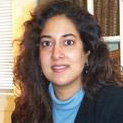 Anita Chakravarti Hale ’94 received a $10,000 Wall Service Award that will fund and provide legal services for geographically and linguistically isolated victims of domestic violence in the rural areas of Pierce County, Washington. Through this project operating under the YWCA of Pierce County, she will reach more isolated survivors of domestic violence and educate them as to their legal rights and options; provide court support and advocacy for these clients to assist them in navigating the complexities of the civil legal system.
This project will also create and develop a “bank” of pro bono/low cost interpreters and translators to assist monolingual women in accessing the court system and increase the numbers of victims of domestic violence from isolated rural areas and/or non-English speaking backgrounds on the caseloads of the program’s 2 attorneys. She will closely work with Northwest Women’s Law Center, Columbia Legal Services, The Northwest Immigrant Rights Projects, and the Tacoma/Pierce County Bar Association.
Anita Chakravarti Hale ’94 received a $10,000 Wall Service Award that will fund and provide legal services for geographically and linguistically isolated victims of domestic violence in the rural areas of Pierce County, Washington. Through this project operating under the YWCA of Pierce County, she will reach more isolated survivors of domestic violence and educate them as to their legal rights and options; provide court support and advocacy for these clients to assist them in navigating the complexities of the civil legal system.
This project will also create and develop a “bank” of pro bono/low cost interpreters and translators to assist monolingual women in accessing the court system and increase the numbers of victims of domestic violence from isolated rural areas and/or non-English speaking backgrounds on the caseloads of the program’s 2 attorneys. She will closely work with Northwest Women’s Law Center, Columbia Legal Services, The Northwest Immigrant Rights Projects, and the Tacoma/Pierce County Bar Association.
Sarah Fee ’96
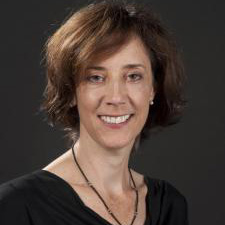 Sarah Fee ’96, former research collaborator and guest curator at the Smithsonian Institution, received a $20,000 Wall Service Award that will fund her project in Madagascar. It will focus on establishing primary schools in three villages in the arid, impoverished southern region of the country, and provide skills to young adults through a local non-governmental organization in the town of Ambondro, and provide organizational and literacy training for 8 women’s associations. The award will allow her to build on and expand on her own private efforts of the past 10 years to assist in these initiatives.
Sarah Fee ’96, former research collaborator and guest curator at the Smithsonian Institution, received a $20,000 Wall Service Award that will fund her project in Madagascar. It will focus on establishing primary schools in three villages in the arid, impoverished southern region of the country, and provide skills to young adults through a local non-governmental organization in the town of Ambondro, and provide organizational and literacy training for 8 women’s associations. The award will allow her to build on and expand on her own private efforts of the past 10 years to assist in these initiatives.Wall Service Award 2001 Recipients
Hollis Pfitsch ’96
Hollis Pfitsch ’96 is a staff member at the domestic violence unit of the Northwest Immigrant Rights Project in Seattle, Washington. For Hollis, helping isolated, traumatized women fulfills the mission of the Wall Service Awards. “We’re really focusing on an underserved community-people who are facing a huge array of problems,” she says. “This is where it’s good to put money.”
The Immigrant Women Outreach Project will reach out to immigrant survivors of domestic violence and make them aware that there are laws to protect them. The project will recruit and train immigrant women who are emerging community leaders to reach out to women and educate them about their rights. They also plan to develop accessible outreach materials for women of many languages and cultures, and distribute them to the places even very isolated women go.
Hollis hopes the project will lead to the funding of an outreach and intake coordinator position to continue the work-ideally to be filled by an immigrant woman community leader.
J. Scott Raecker ’84
With the help of Grinnell College and Rotary International, who will match the funds provided by Grinnell, Scott’s project will bring together a team of 16 professionals to renovate and enlarge two orphanages in the City of Lijiang, Yunnan Province, China. The orphanages are home to almost 300 children who have lost their parents to the natural disasters that have recently ravaged the area. Hundreds more children live on their own in towns and villages, struggling to survive, and there are currently no facilities for infants at the orphanages. The total price tag for the project is $125,000, with travel expenses and other incidentals being paid by the volunteers themselves unless more donations can be found.
Scott says the lessons he learned from Professor Wall and others at Grinnell College have brought him to this place in life. “Grinnell set a standard that there was a responsibility to use that education to make the world a better place,” Scott says. “It really penetrated my soul.
“Grinnell has given so much to me-I want to leverage that to help someone else.”
Wall Service Award 2000 Recipients
Amy Neevel ’95
Amy Neevel ’95, a teacher, volunteer, and organizer, received a $25,000 grant that will fund a series of slam poetry workshops for New York City youth. Slam poetry, she says, is a nationwide phenomena that “brings sport to poetry.” For the poets, slam can engender emotional, spiritual, and intellectual freedom. Neevel hopes to bring a similar transformation to the lives of troubled teenagers in New York City.
The sites she has chosen for the workshops are: The Island Academy and Rosewood High School, both located within the correctional facilities on Rikers Island; the Hetrick-Martin Institute for gay, lesbian, bisexual, and transgendered youth; and the Family Academy School in Harlem. Twelve accomplished poets will serve as workshop instructors, offering their literary skill, wisdom, and mentoring to the young people. Each workshop will culminate in the publication of a class “chapbook,” or collection of poetry. The students will also get a chance to perform their poetry at poetry slams.
“The goal is to create a community through storytelling. Many young people have to deal with very adult issues, and tell poignant stories about violence and loss. Studies show that it is therapeutic for individuals who have been traumatized to write about their experiences,” Neevel continues, “Being honest about your emotions can de-escalate the violence… I hope that they come away with a greater sense of community and self-worth.”
Lorie Hill ’68
Lorie Hill ’68, a teacher and psychologist, received a $25,000 Wall Service Award that will fund a violence prevention program at five San Francisco area homeless shelters. The Jump Start workshops teach people of all ages to work out conflicts instead of fighting. Developed in 1988 for use in schools, the program uses violence prevention as a framework forteaching negotiation skills, unlearning racism, and deconstructing the cultural biases that underlie other forms of prejudice. Participants learn how to think critically about why we use violence to defend self-respect in our culture, and to explore other ways of de-escalating tense situations.
Hill says that homeless shelters bring together in close proximity some of the most stressed and least valued people in our society–and many of those people are children. Her goal is to help prevent new trauma among these children and adults by helping them manage and handle conflict. An interracial team of facilitators leads the workshops, which use powerful exercise, role-playing, skits, films, and conversations, all designed for the developmental level of the participants. “If my work creates change in one life, and that person can turn around and teach one other person how to live in a safe and respectful way, that is what this work is about for me,” says Hill.
Wall Service Award 1999 Recipients
Anne Anderson ’64
Anne Anderson ’64, of Washington, D.C., will use the $25,000 award to help fund the Psychologists for Social Responsibility’s (PsySR) International Peace Practitioner’s Network, a network of psychologists and others working to build peaceful communities through psychosocially informed projects appropriate to situation and culture. Among the projects the network will undertake are an Internet discussion group on human rights around the world, and the Cultures of Peace Practitioners’ Network, a participatory, interactive network of practitioners from many parts of the world who are engaged in the psychosocial work of healing the stresses associated with war.
One of the hallmarks of the PsySR program is the emphasis on working with and listening to people in local communities when implementing programs for victims of trauma in such places as Bosnia, Rwanda, Angola, and now Kosovo. “This culturally sensitive, participatory orientation is very much a part of me,” says Anderson, “it extends the learning that began at Grinnell.”
Sandra Stein ’88 and David Loewenstein ’88
Sandra Stein ’88, of New York City, and David Loewenstein ’88, of Lawrence, Kansas, will use their $25,000 to involve two youth groups from diverse contexts to research, design, and paint a mural. High school students in New York City and Holcomb, Missouri, will collaborate via electronic communications on a co-researched, co-designed mural project that will be interpreted and painted in two separate sites. Each group will interpret the collective design and paint its own version of the mural.
Once the mural is painted in both locations, it will travel (both pieces as one mural) along with the video that documents its creation to museums, corporations, galleries, and educational facilities. After these travels, the mural will be installed. The section pained in Missouri will be installed in New York and the one painted in New York will be installed in Missouri. Both will constitute public works that are shared by the entire communities of both settings.
Wall Service Award 1998 Recipients
Benjamin Whitehill ’51
 Benjamin Whitehill ’51, of Santa Fe, New Mexico, has received $25,000 for his project, “Bread for the Journey.” Whitehill, a public health physician who was born and reared in Marshalltown, Iowa, and who now lives and works in Santa Fe, is using the award to expand the 10-year-old nonprofit organization known as “Bread for the Journey” in a new directions, establishing a national organization with local chapters.
Bread for the Journey was founded in 1988 to serve the needs of people and communities throughout northern New Mexico. It is a voluntary organization with a 6-member board of active volunteers, with no paid staff. It is based on a belief that a small, quiet network of dedicated people can serve with simplicity, minimal administrative costs, and with dignity and effectiveness. Since 1988, BFJ chapters have micro-granted over three million dollars to community-based projects.
As a nonprofit charity, BFJ supports ideas, talents, and the commitment of local people through projects that are simple, quick, and helpful. The task is clear: to find people who are excited about helping their community and help them make it happen.
Update:
As a result of the Wall Service Award, Bread For The Journey has now expanded to 20 chapters throughout the USA, located in the following places: Ashland, OR; Atlanta, GA; Austin, TX; Bloomington, IN; Chicago, IL; Cincinnati, OH; Denver, CO; Flagstaff, AZ; Indianapolis, IN; Kauai, HI; Oakland, CA; Orange County, CA; Portland, ME; San Diego, CA; Santa Clara County, CA; Santa Fe, NM; Seattle, WA; Sebastopol, CA; Southwest Michigan (Kalamazoo), MI; Wilmington, DE.
Benjamin Whitehill ’51, of Santa Fe, New Mexico, has received $25,000 for his project, “Bread for the Journey.” Whitehill, a public health physician who was born and reared in Marshalltown, Iowa, and who now lives and works in Santa Fe, is using the award to expand the 10-year-old nonprofit organization known as “Bread for the Journey” in a new directions, establishing a national organization with local chapters.
Bread for the Journey was founded in 1988 to serve the needs of people and communities throughout northern New Mexico. It is a voluntary organization with a 6-member board of active volunteers, with no paid staff. It is based on a belief that a small, quiet network of dedicated people can serve with simplicity, minimal administrative costs, and with dignity and effectiveness. Since 1988, BFJ chapters have micro-granted over three million dollars to community-based projects.
As a nonprofit charity, BFJ supports ideas, talents, and the commitment of local people through projects that are simple, quick, and helpful. The task is clear: to find people who are excited about helping their community and help them make it happen.
Update:
As a result of the Wall Service Award, Bread For The Journey has now expanded to 20 chapters throughout the USA, located in the following places: Ashland, OR; Atlanta, GA; Austin, TX; Bloomington, IN; Chicago, IL; Cincinnati, OH; Denver, CO; Flagstaff, AZ; Indianapolis, IN; Kauai, HI; Oakland, CA; Orange County, CA; Portland, ME; San Diego, CA; Santa Clara County, CA; Santa Fe, NM; Seattle, WA; Sebastopol, CA; Southwest Michigan (Kalamazoo), MI; Wilmington, DE.
Trevor Harris ’89
Trevor Harris ’89, of Cold Springs, New York, has received $20,000 for his public service project, “Building Bridges, Building Boats.” Harris will use the award to develop an after-school program for high school students in Cold Spring. The program is devoted to increasing self-confidence and an awareness of the history and ecology of the Hudson River through a year-long process of building shad boats, the traditional wooden fishing boats of the Hudson River. The after-school program takes high school juniors through a program of working together in pairs each weekday afternoon to build the boats. Every other weekend, students organize community service projects and cooperative learning ventures involving parents, siblings, and friends, at the Audubon Society’s Constitution Marsh, the Hudson River Sloop Clearwater, and river clean-up sites.Wall Service Award 1997 Winners
Doug Cutchins ’93 and Anne Geissinger ’93
Doug Cutchins ’93 and Anne Geissinger ’93 received $18,000 to augment and expand the educational facilities and opportunities of 1,500 Saramaccan residents of the Gran Lio River in Suriname, South America. The funds were used to repair and electrify a village school, as well as to build, staff, and supply a village library.
When they received the award, Geissinger told Grinnell Magazine, “This award will mean that more children will be able to come to school. They will be able to start and complete and education in the village. And then they will have the opportunity to go on for further education in the capital of Suriname.”
Jenny Egan ’49
Jenny Egan ’49 received her Wall Award to help orchestrate a series of three concerts featuring multi-ethnic music from the period of Spanish conquest and early European settlement of the Southwest. Both religious and secular music was presented from the Native American, Hispanic, and European traditions, including folk songs, villancicos, court music, and Sephardic song with percussion.
Egan told Grinnell Magazine, “the concerts will demonstrate that music is a part of daily life, not merely an esoteric activity of a handful of concert goers. Music is found at the heart of worship, love and mating rituals, the quest for spiritual wholeness, the acceptance of loss, the celebration of joy, and the reverence of nature. While the uses of music are not identical in all cultures, they frequently overlap in ways which, when we are made aware of them, increase our understanding of our common ties.”
Lynne Stoelting Leeper ’67
Lynne Stoelting Leeper ’67 applied for the Wall Award as the project coordinator for Washington state’s Parents Are Vital in Education Parent Training Project (PAVE). The $25,000 was used to hold the Kaleidoscope Conference. Upon receiving the award, Leeper explained to Grinnell Magazine, “The Kaleidoscope Conference will be an opportunity for families of children with disabilities to meet each other, to learn about what support exists from various state and federal agencies as well as community organizations, and to understand how they impact the world around them as individuals and as a group.
Ric MacDowell ’68
Ric MacDowell ’68 was serving as a county extension agent for West Virginia University when he received the Wall Service Award in the amount of $21,600. “I’m a youth development agent,” Ric told Grinnell Magazine, “which means I work on a county level with young people and families. My major emphasis is on working with kids who are at risk.”
MacDowell used his award to develop a program to bring together at-risk children, parents, supporting adults, and teachers. The project goal was to support parents, helping them develop new skills and stressing their own abilities and knowledge.
